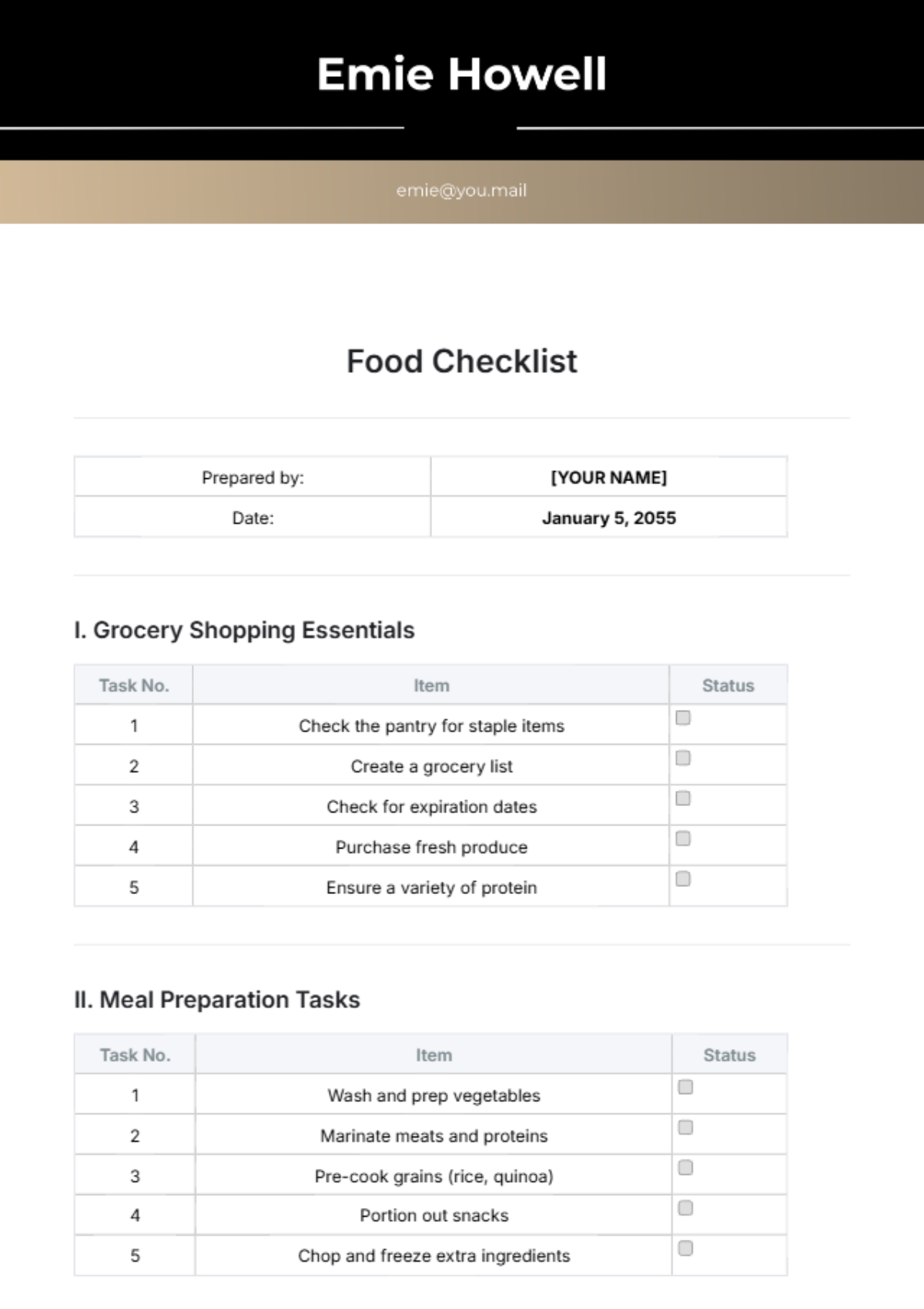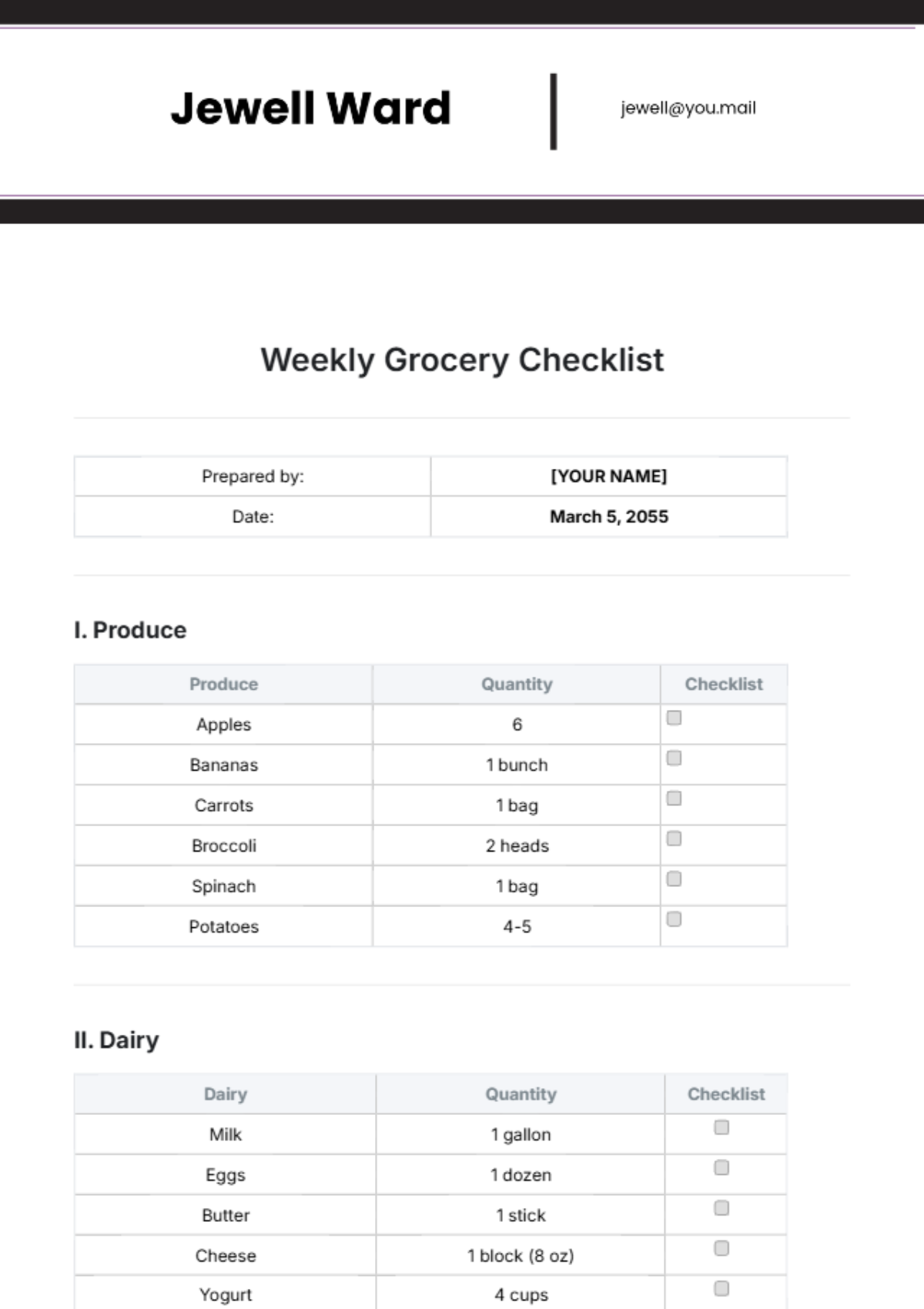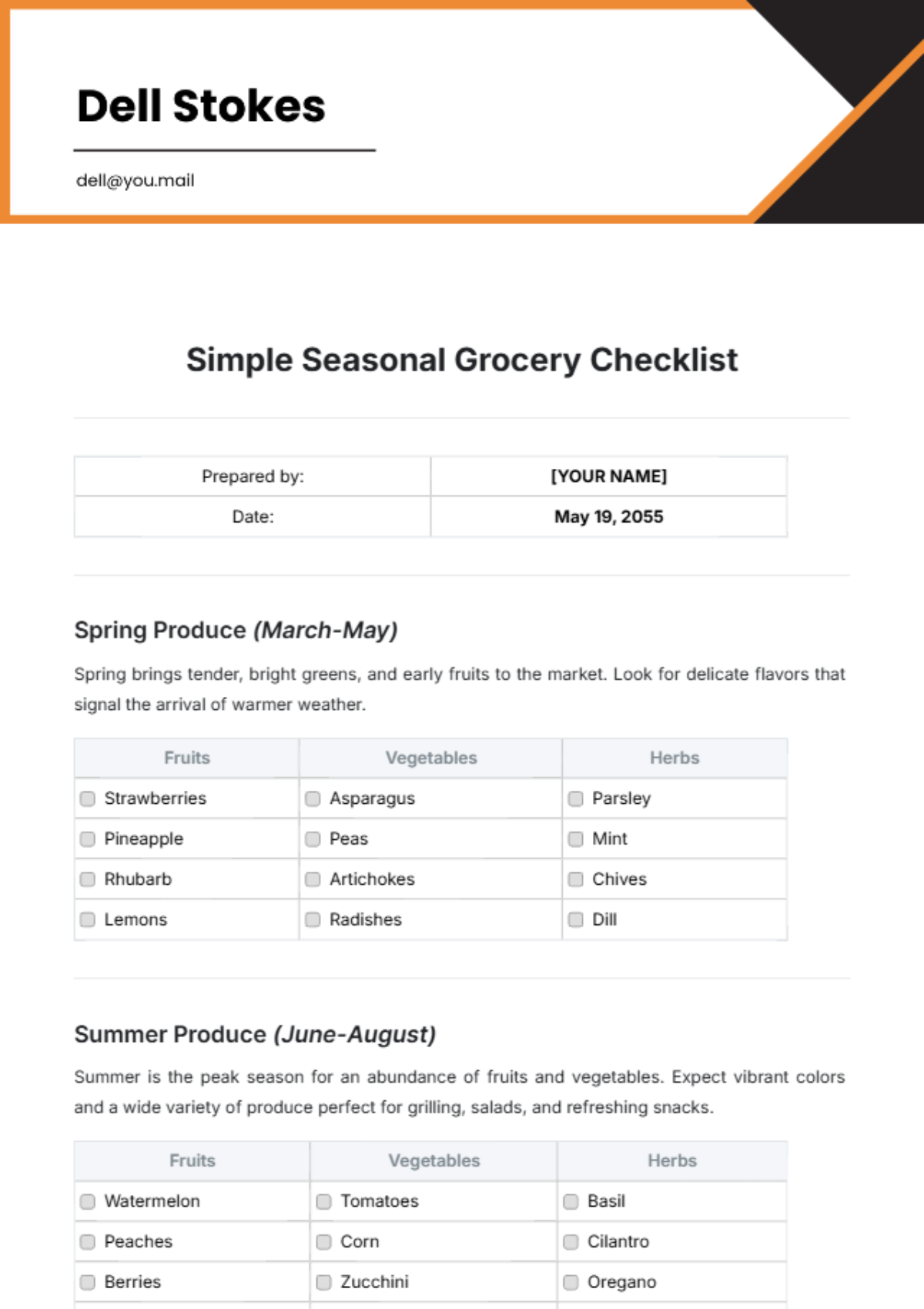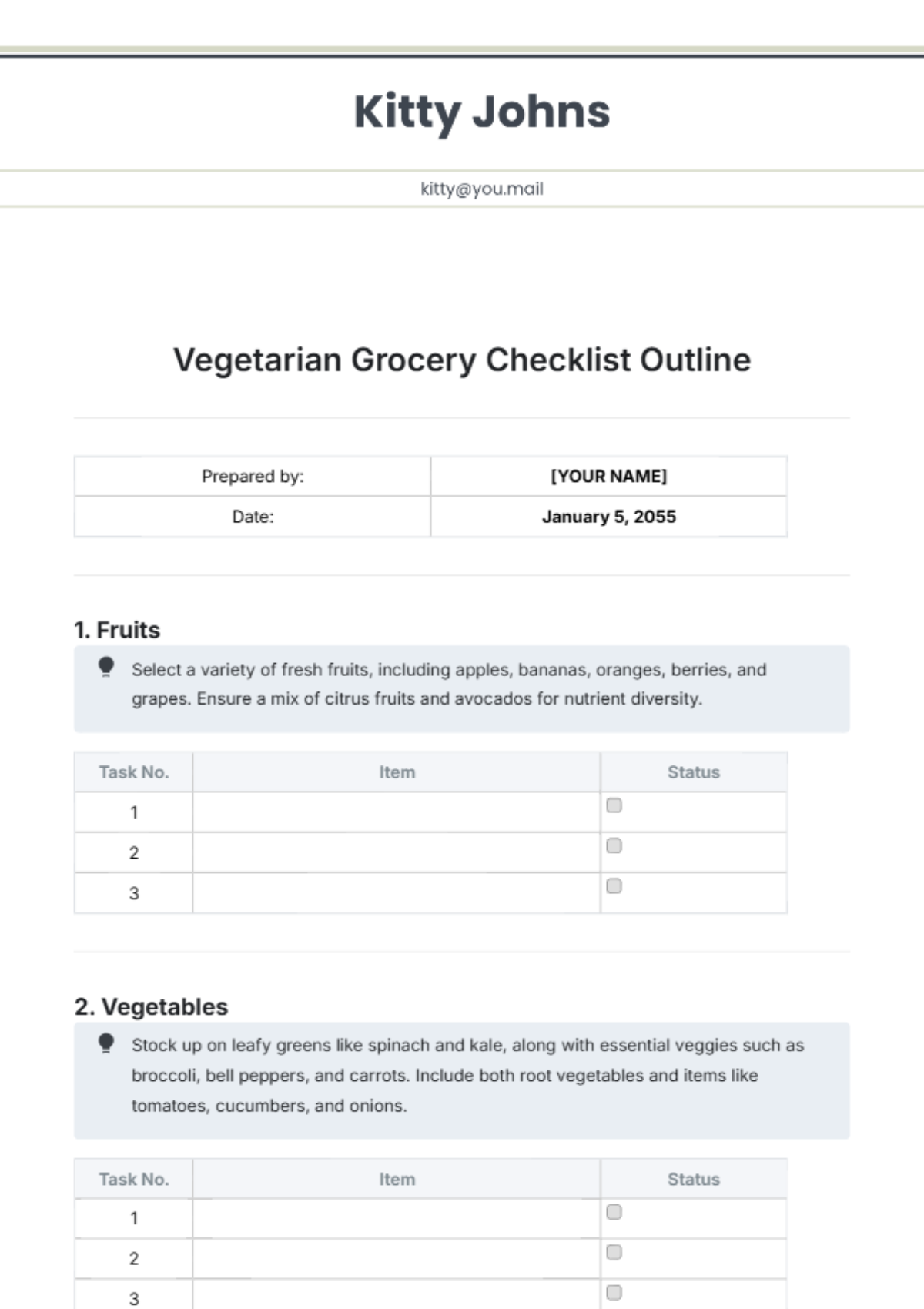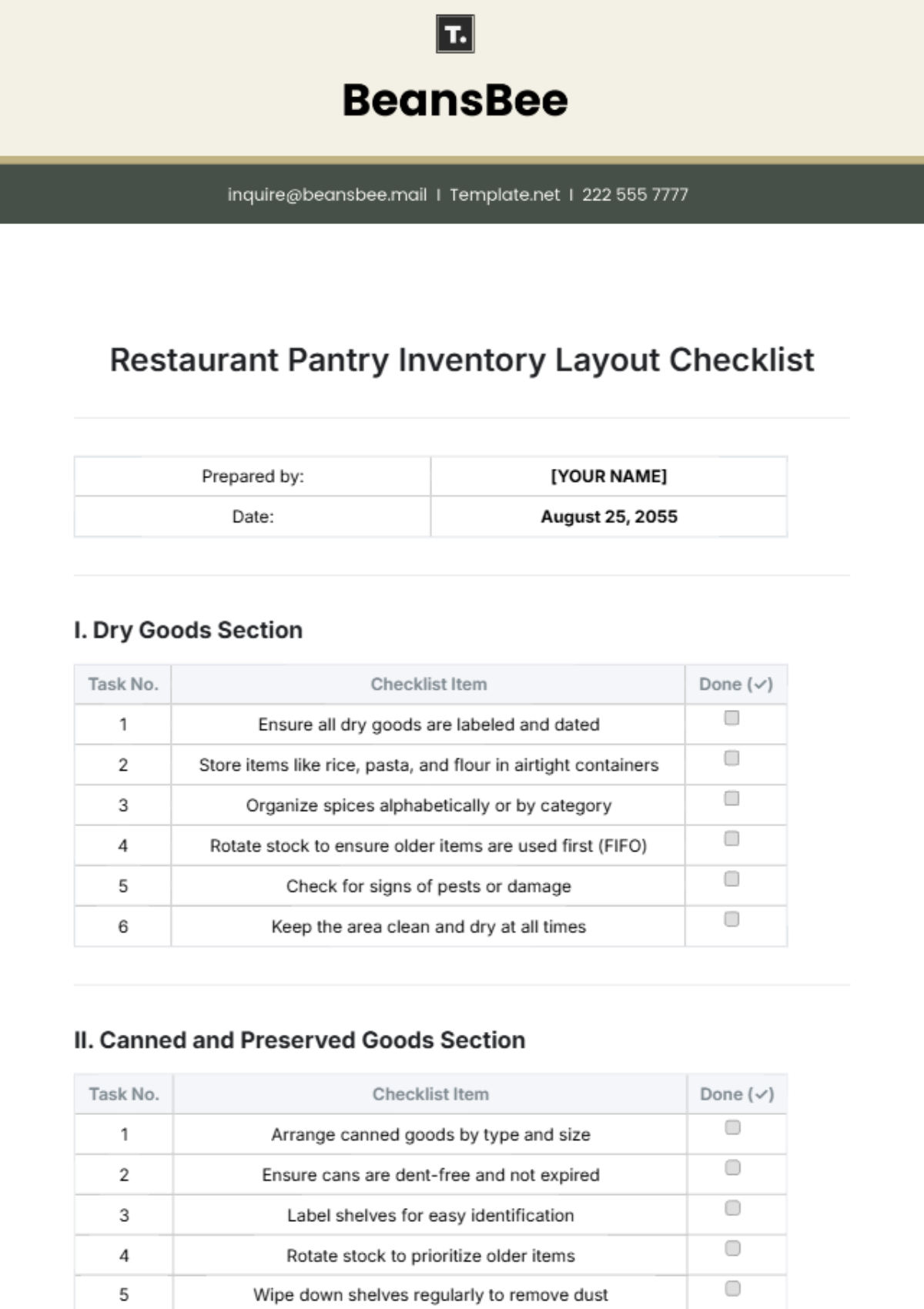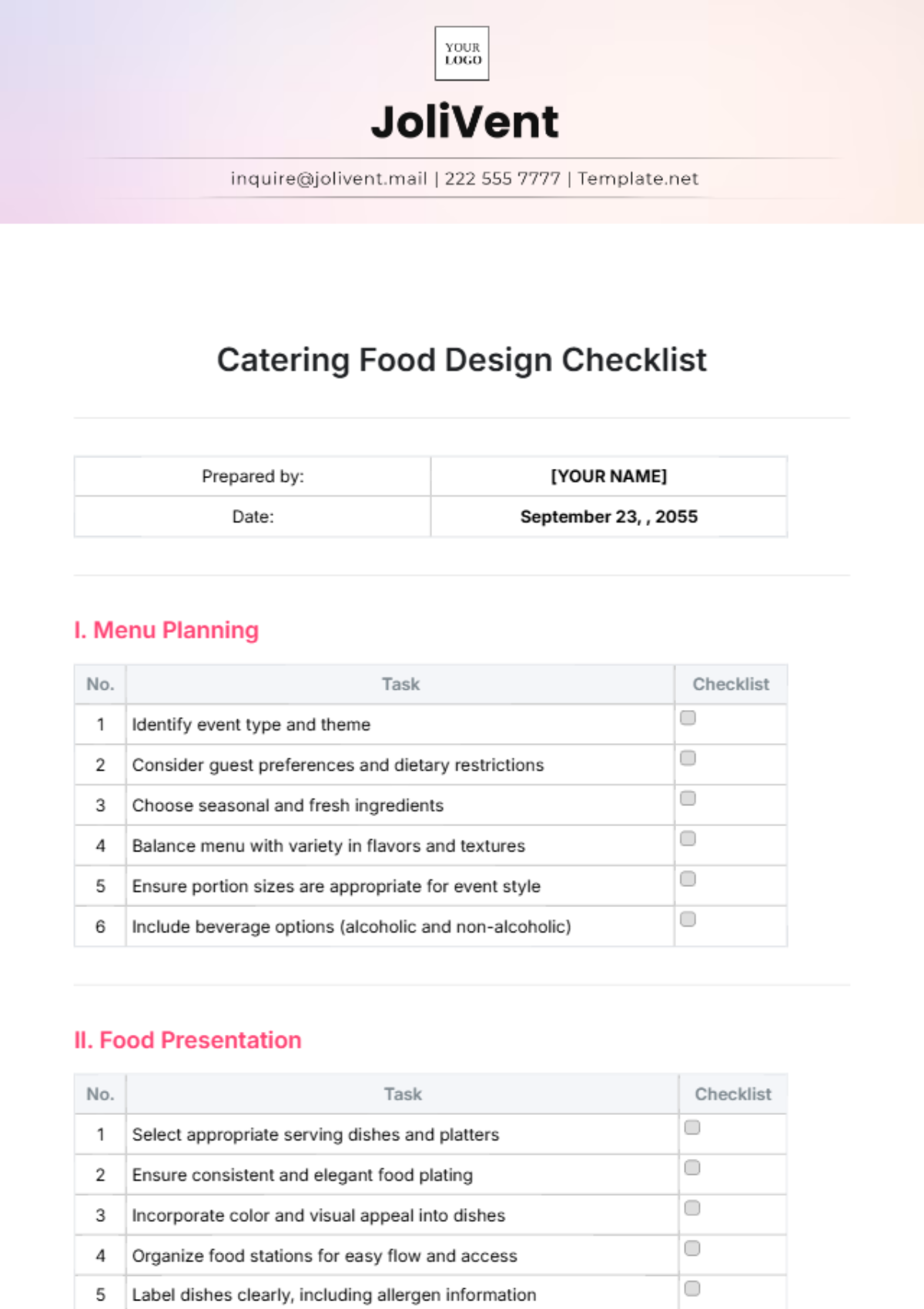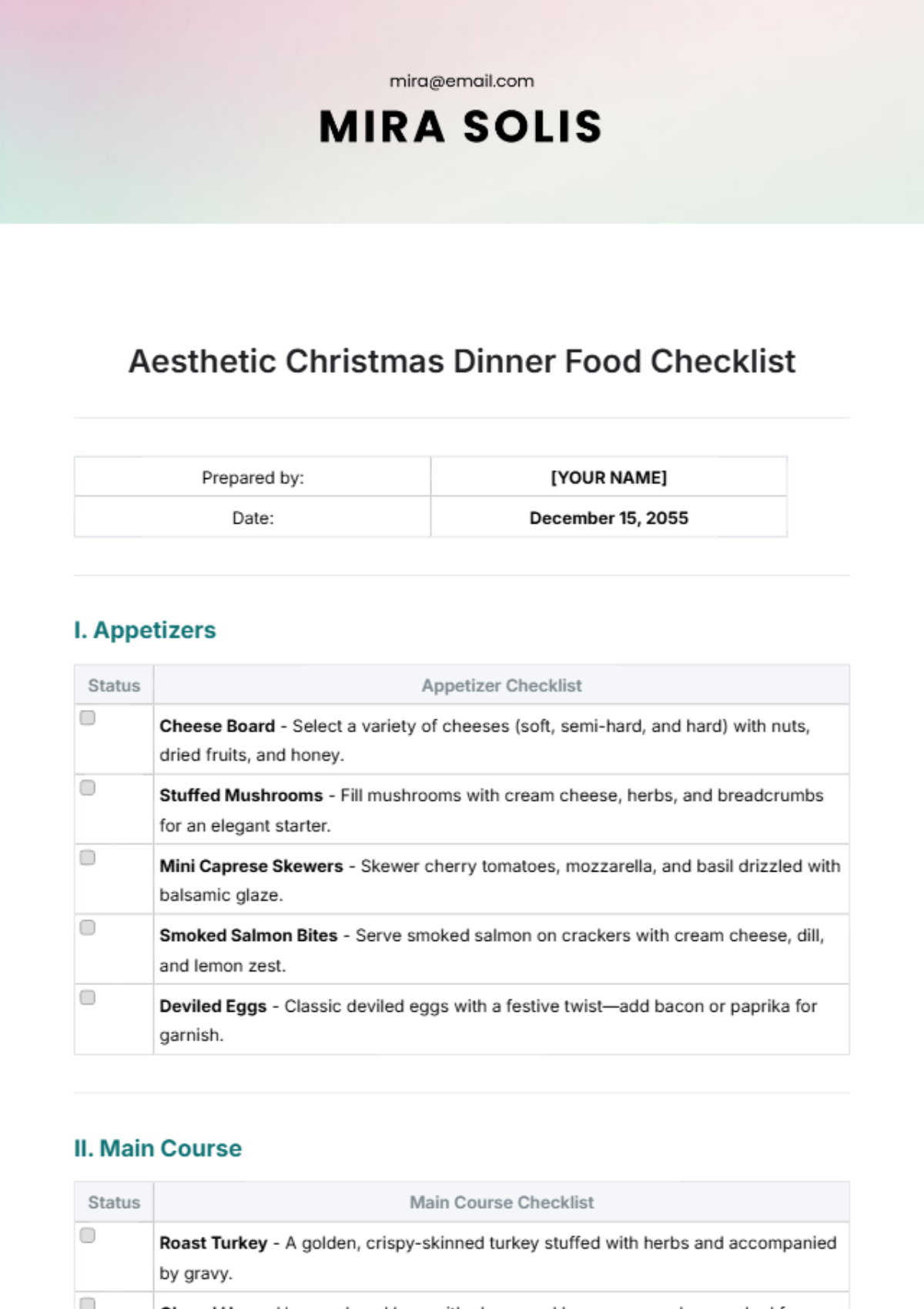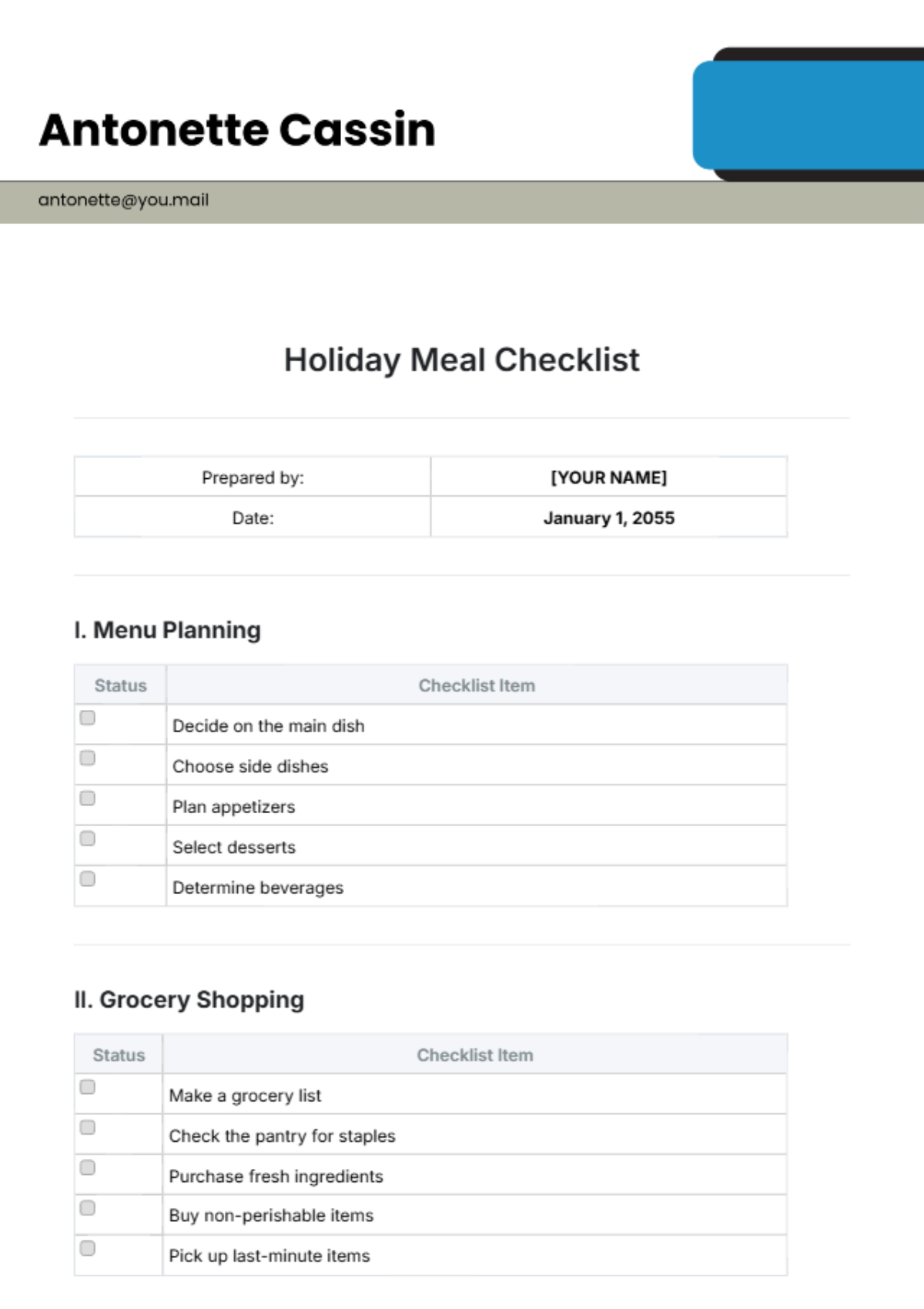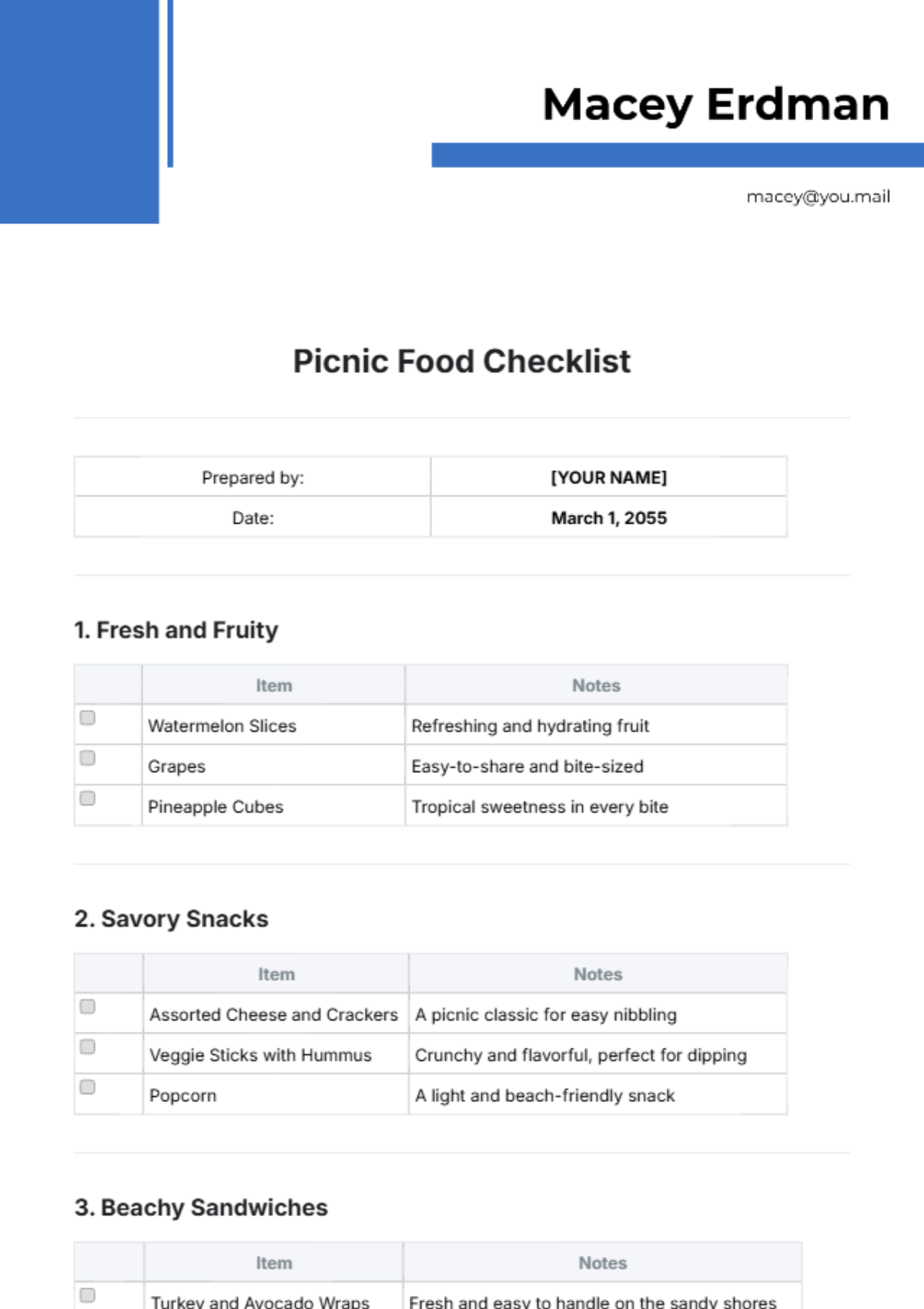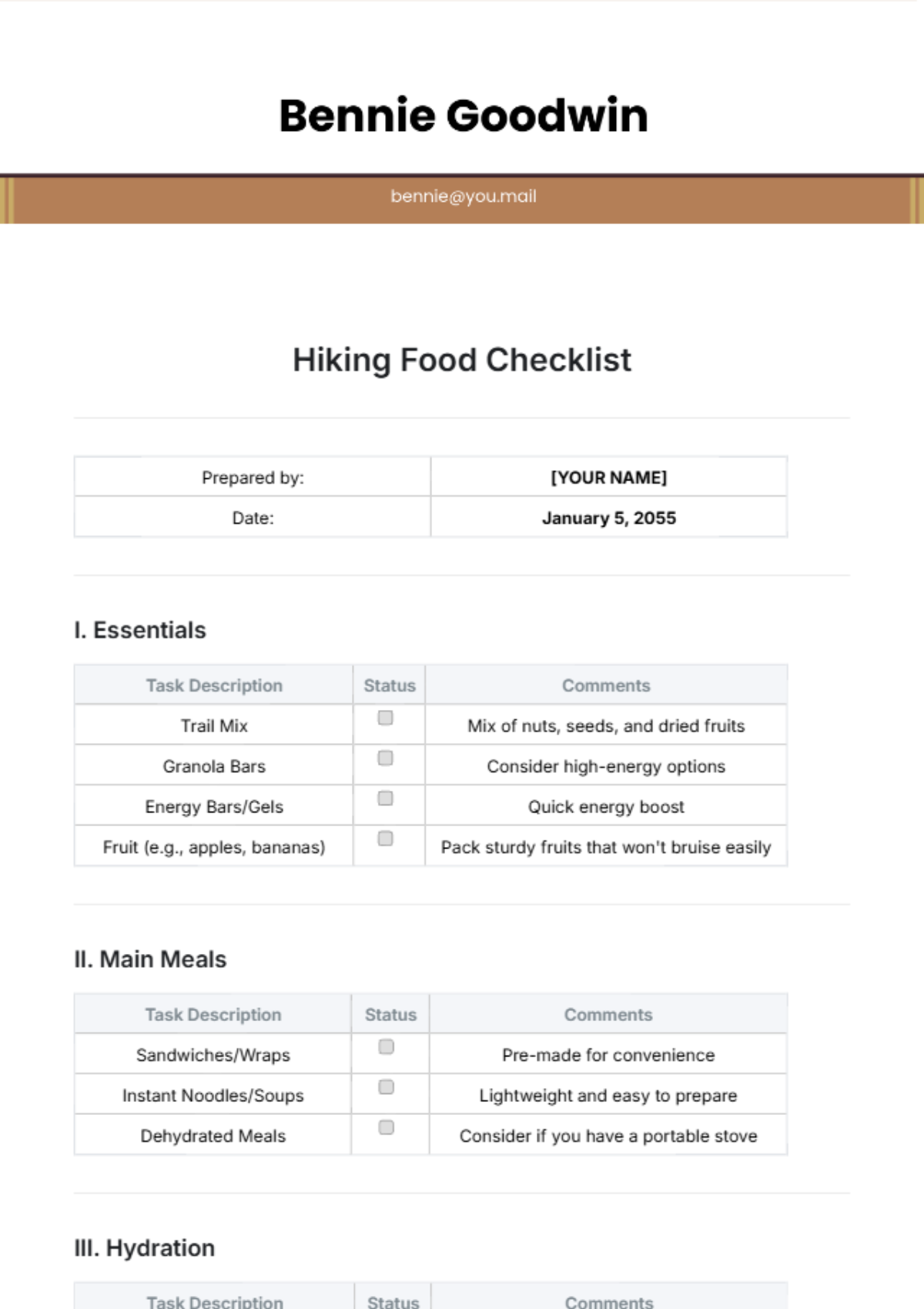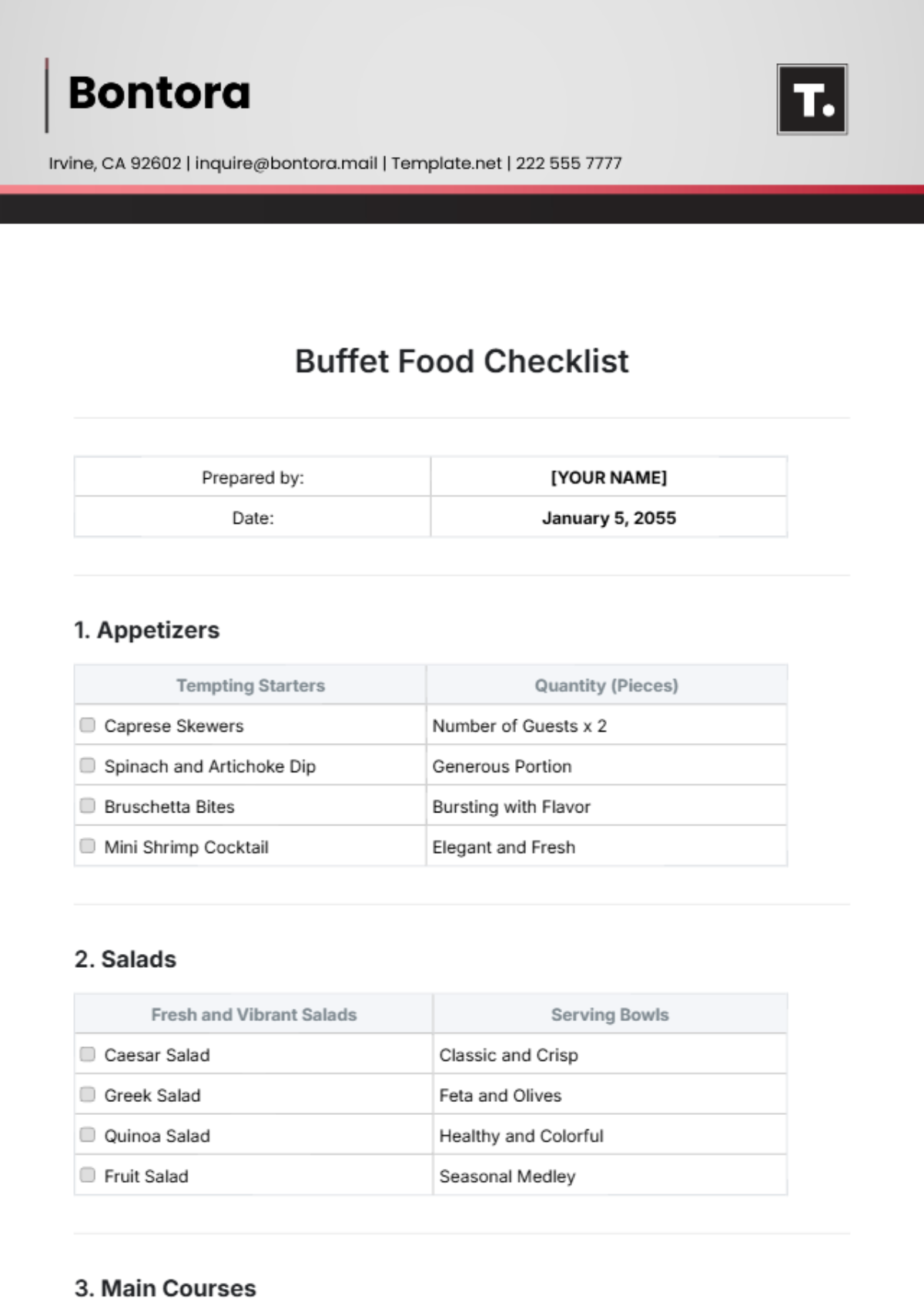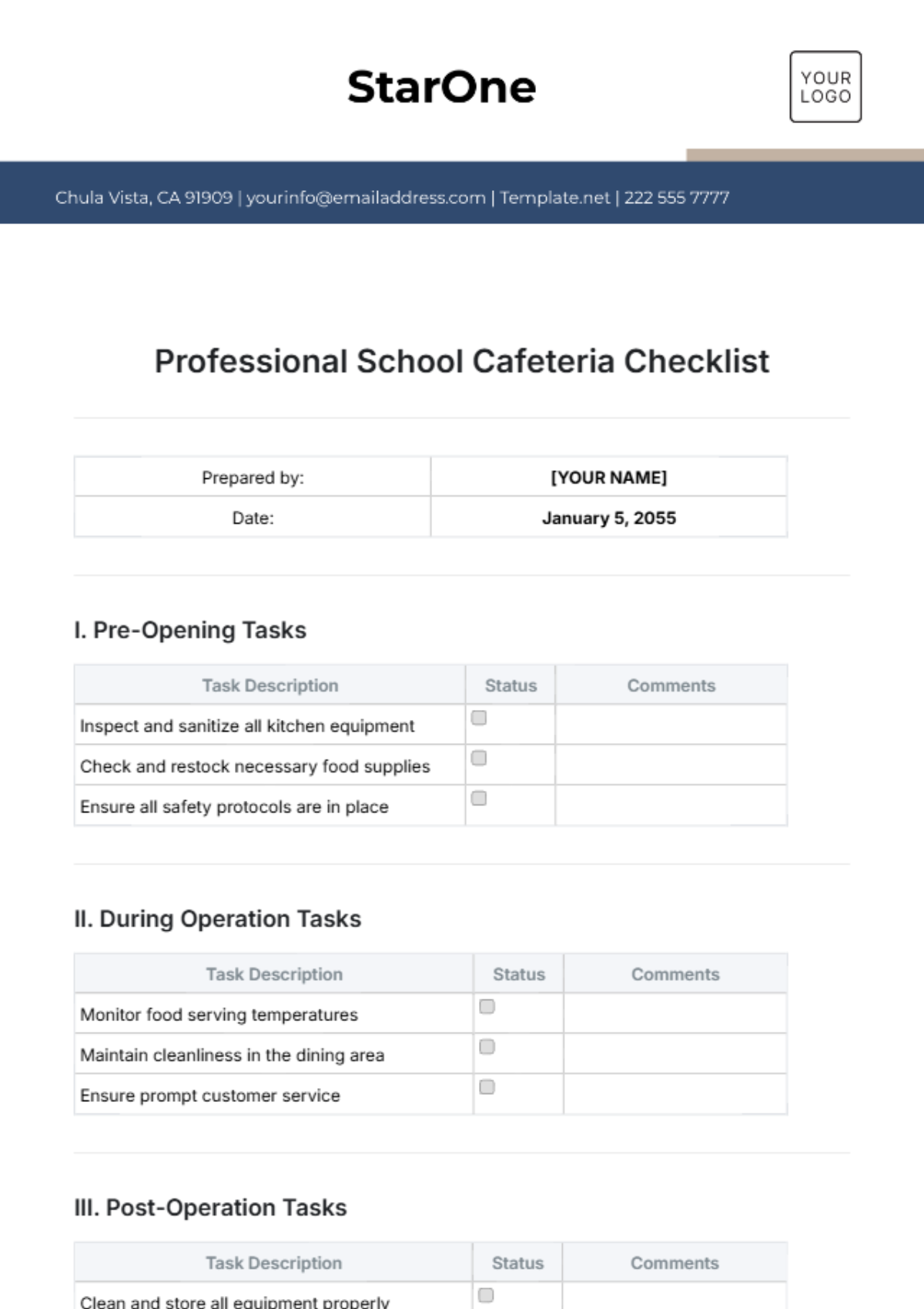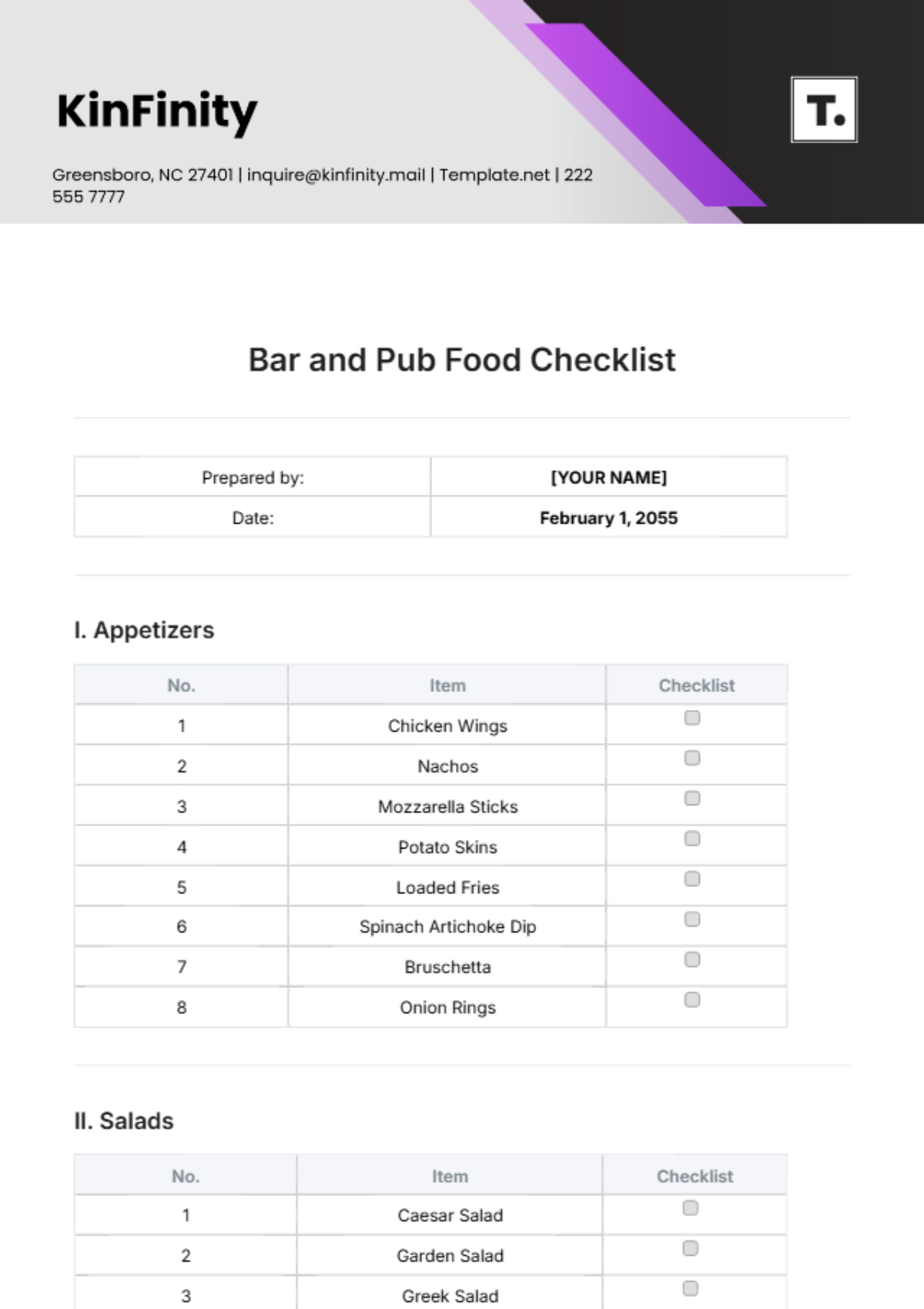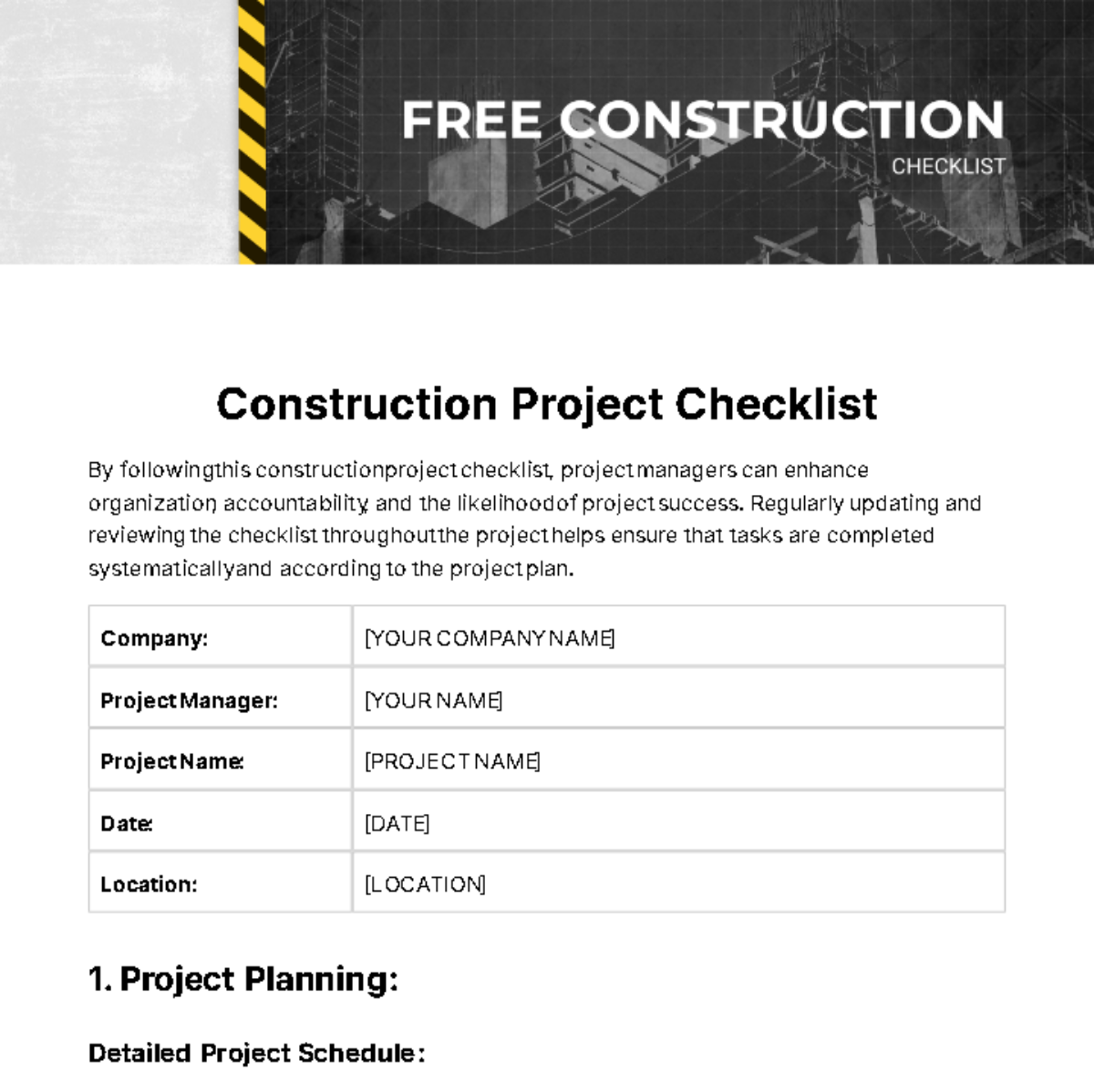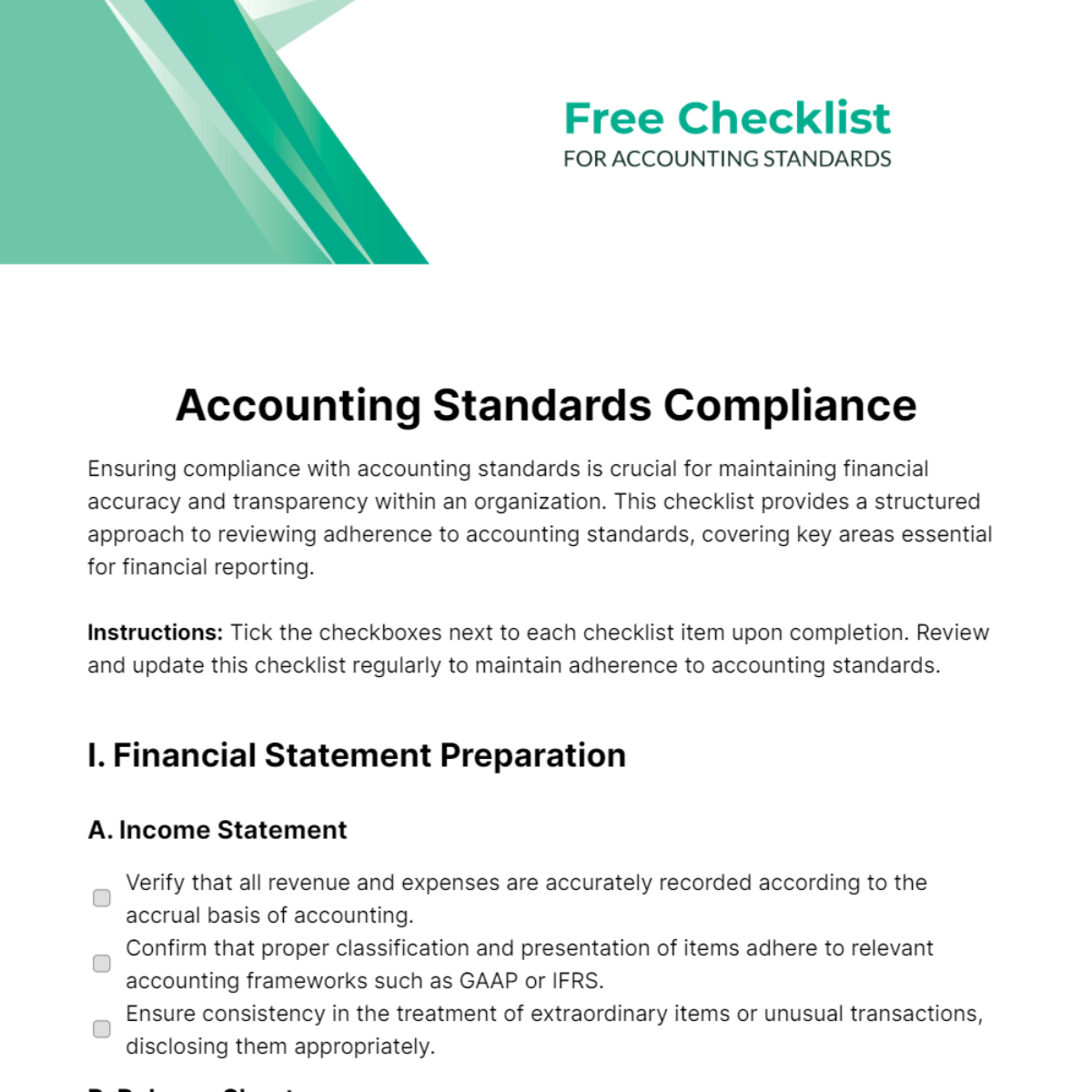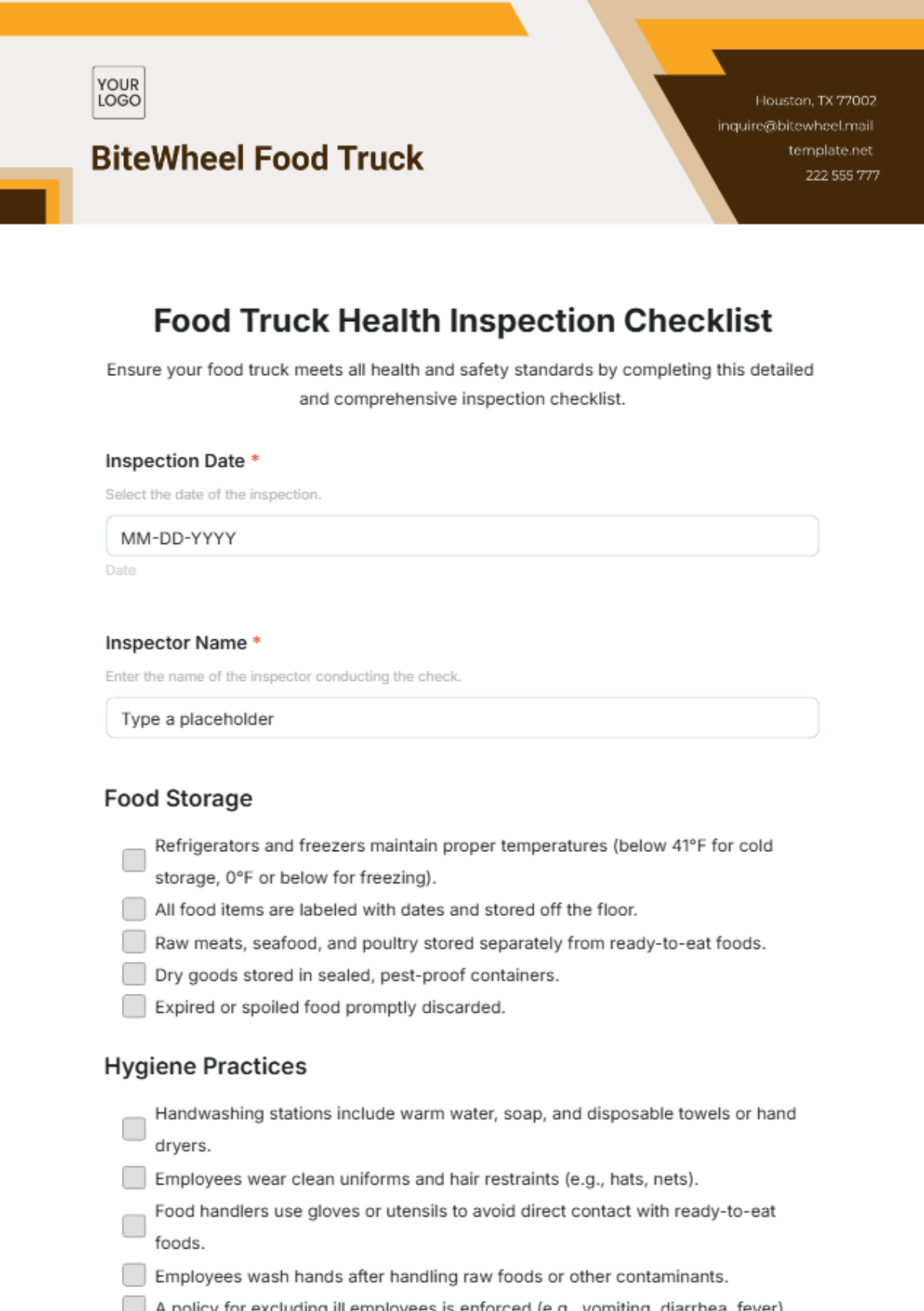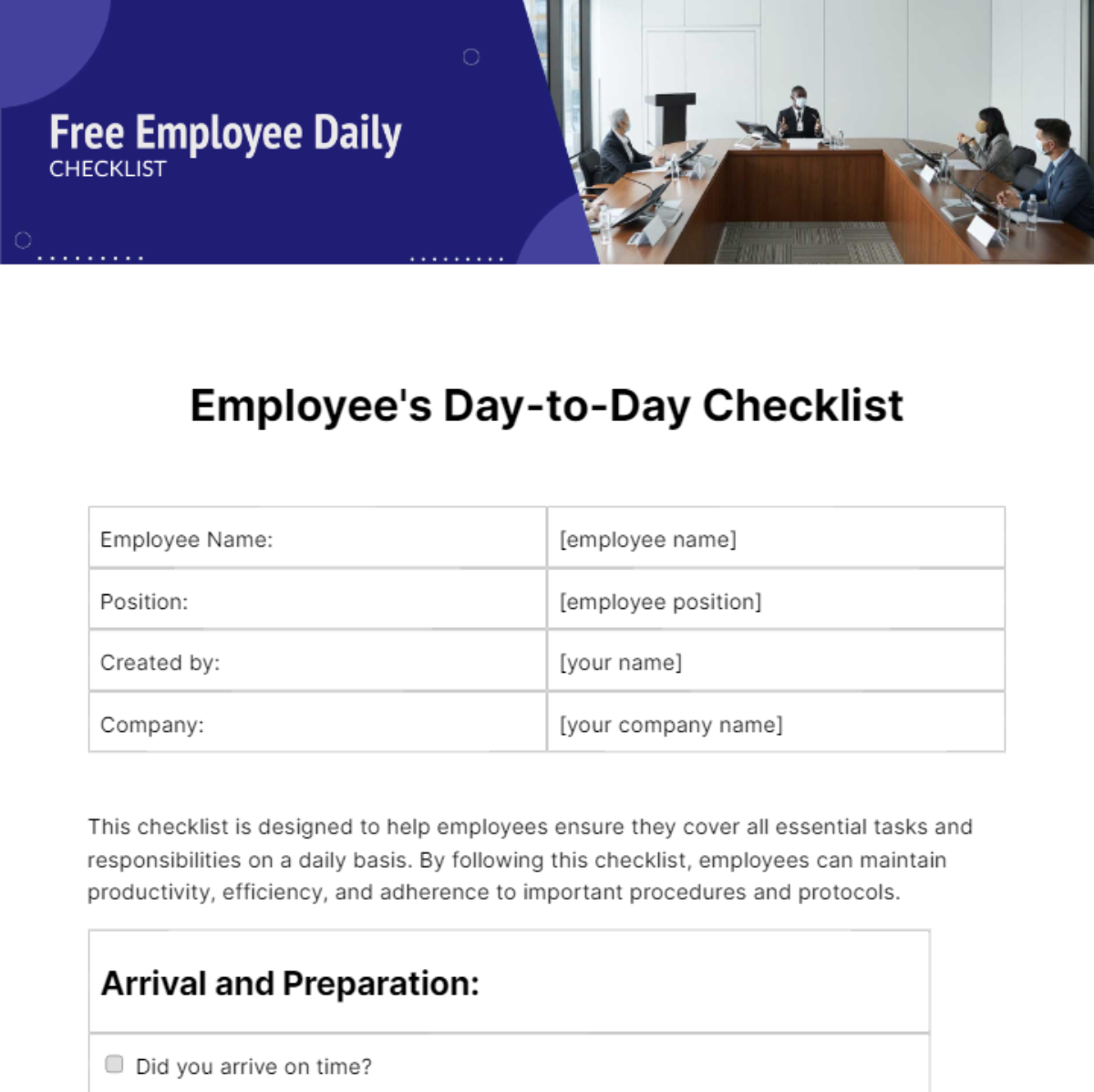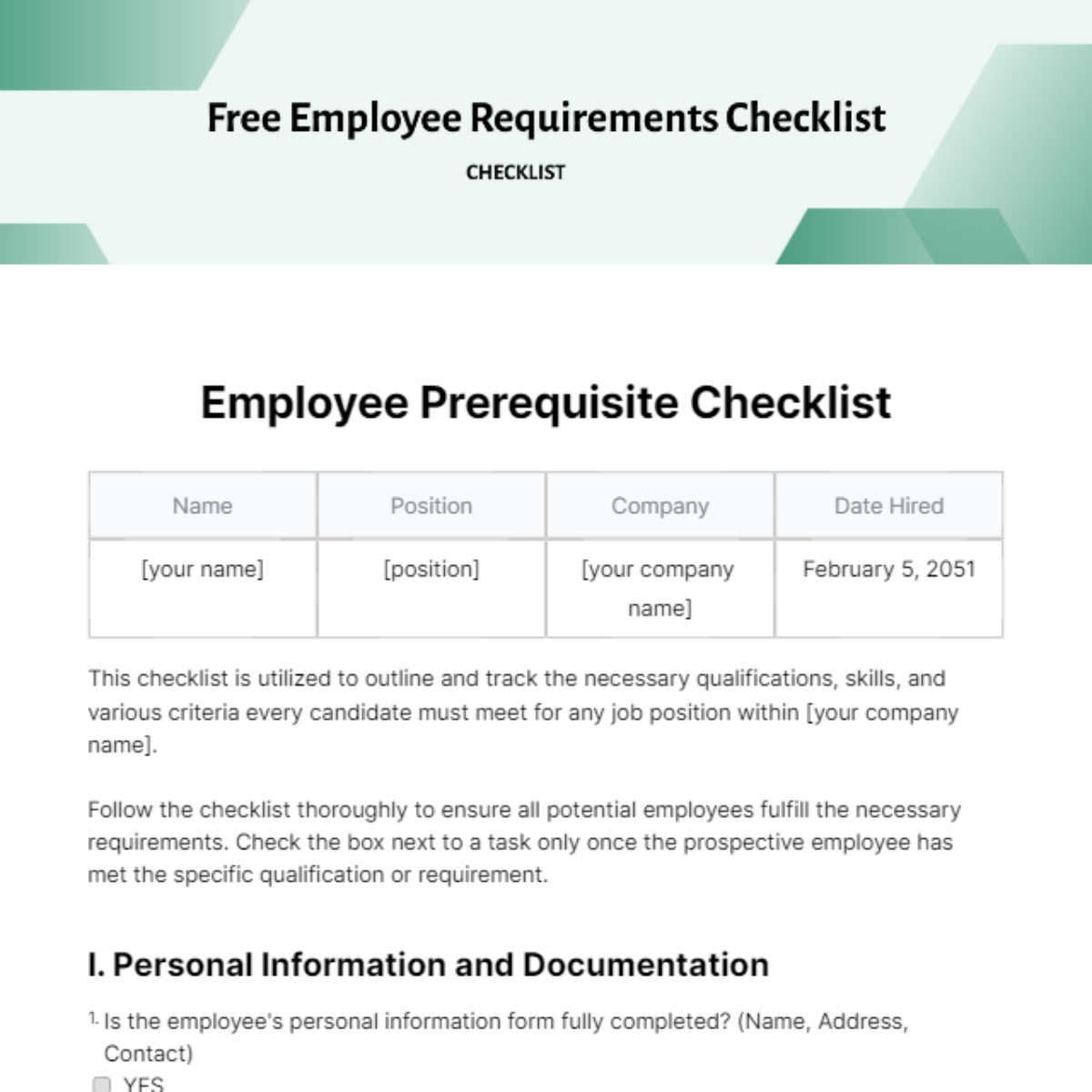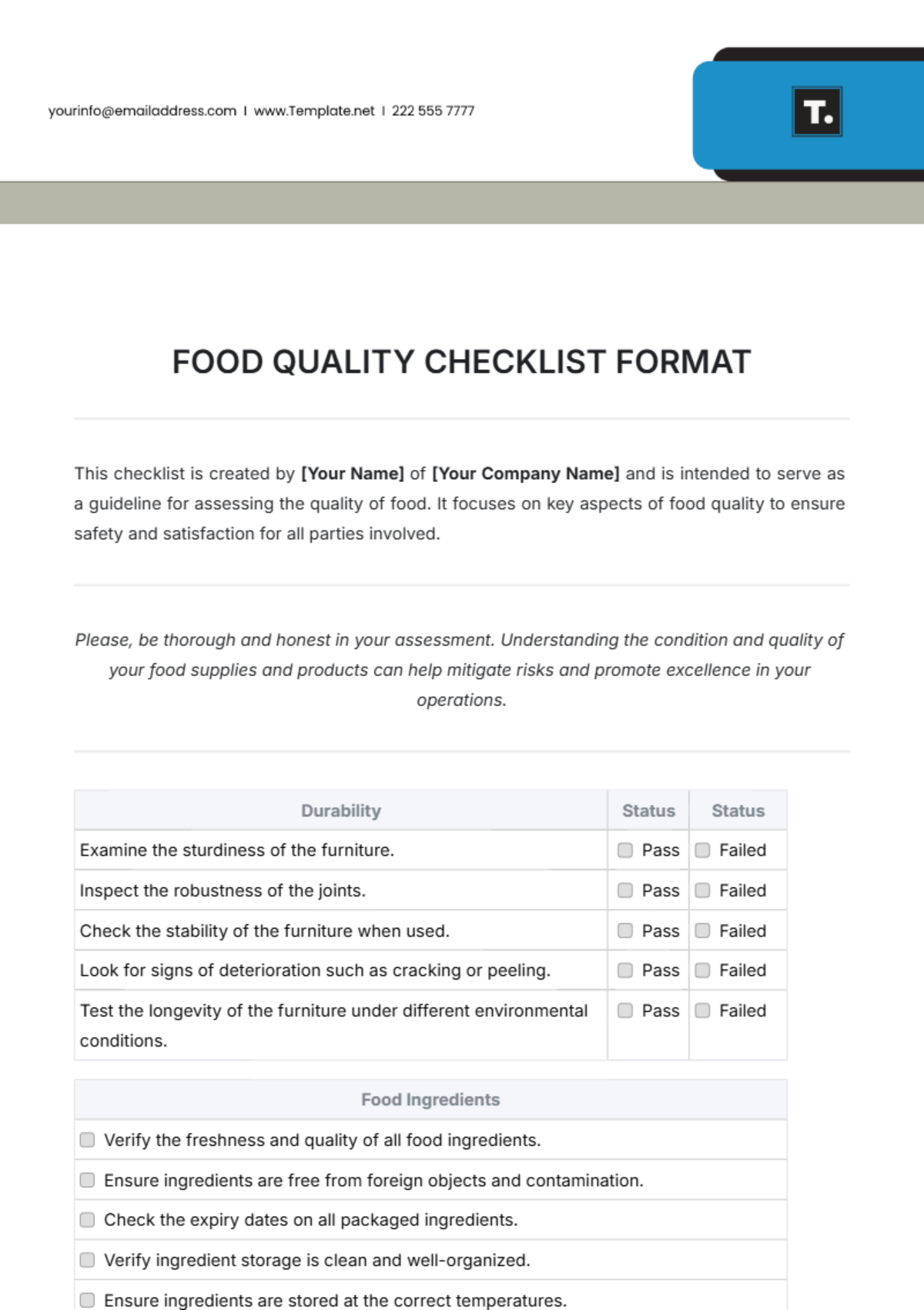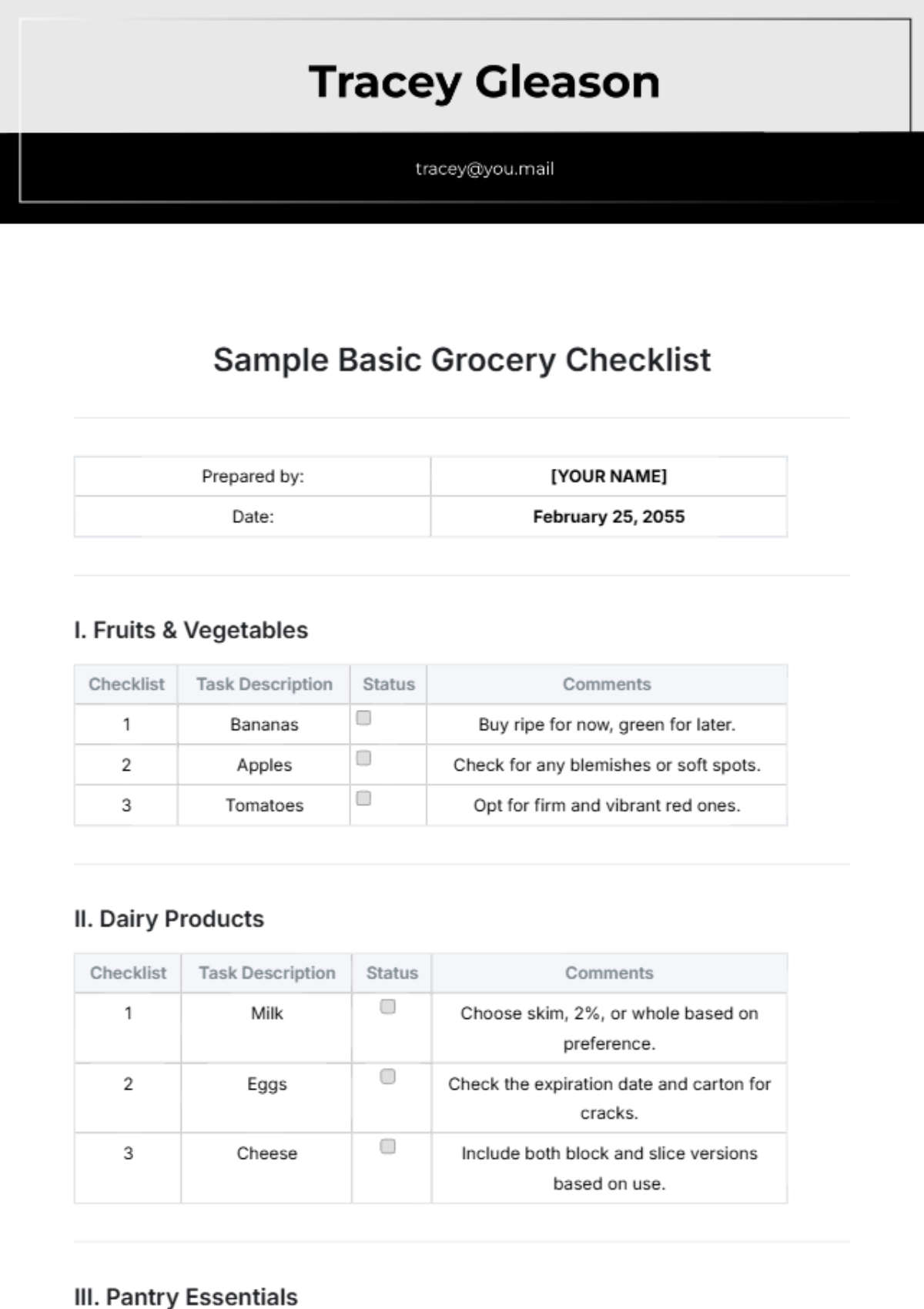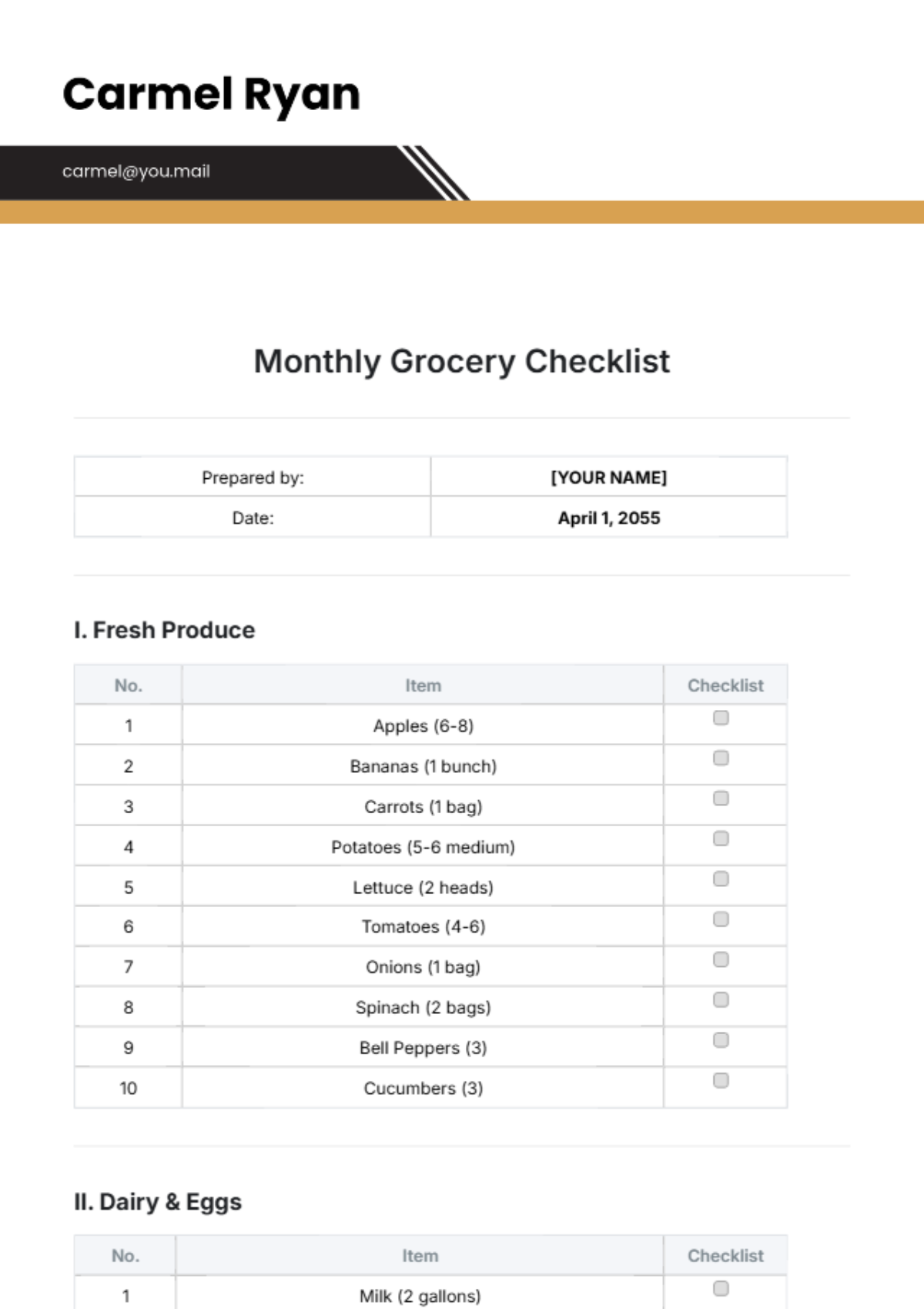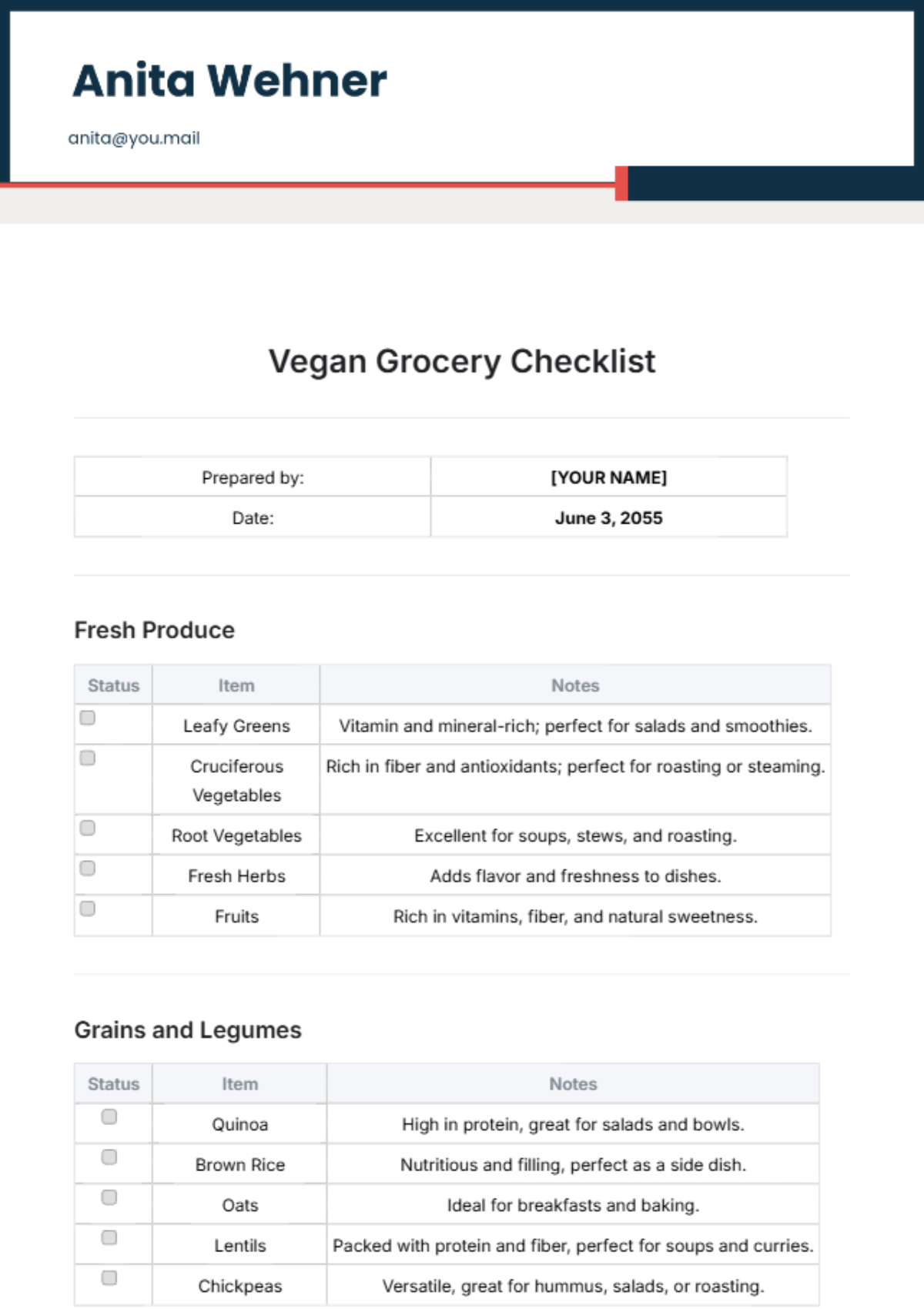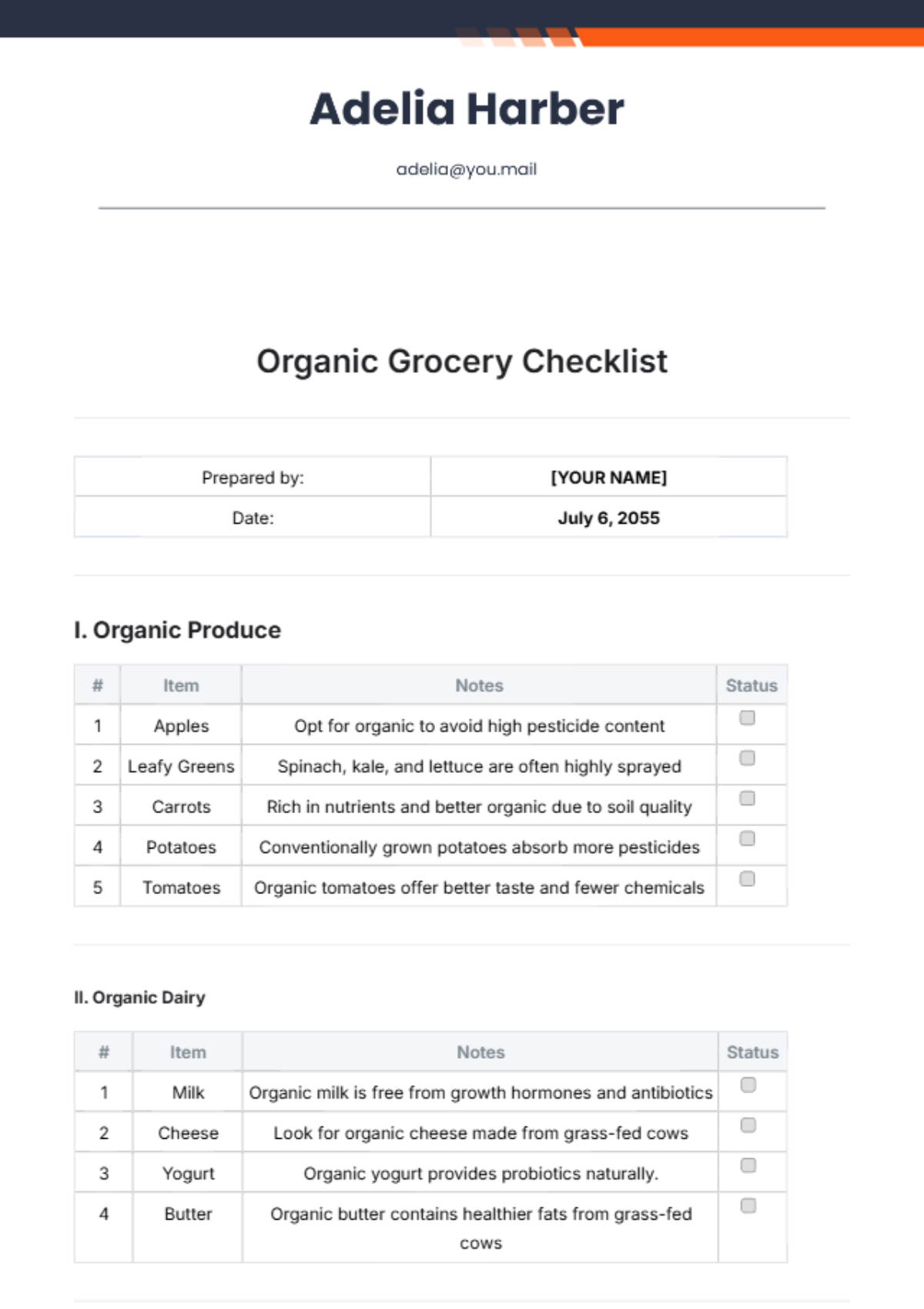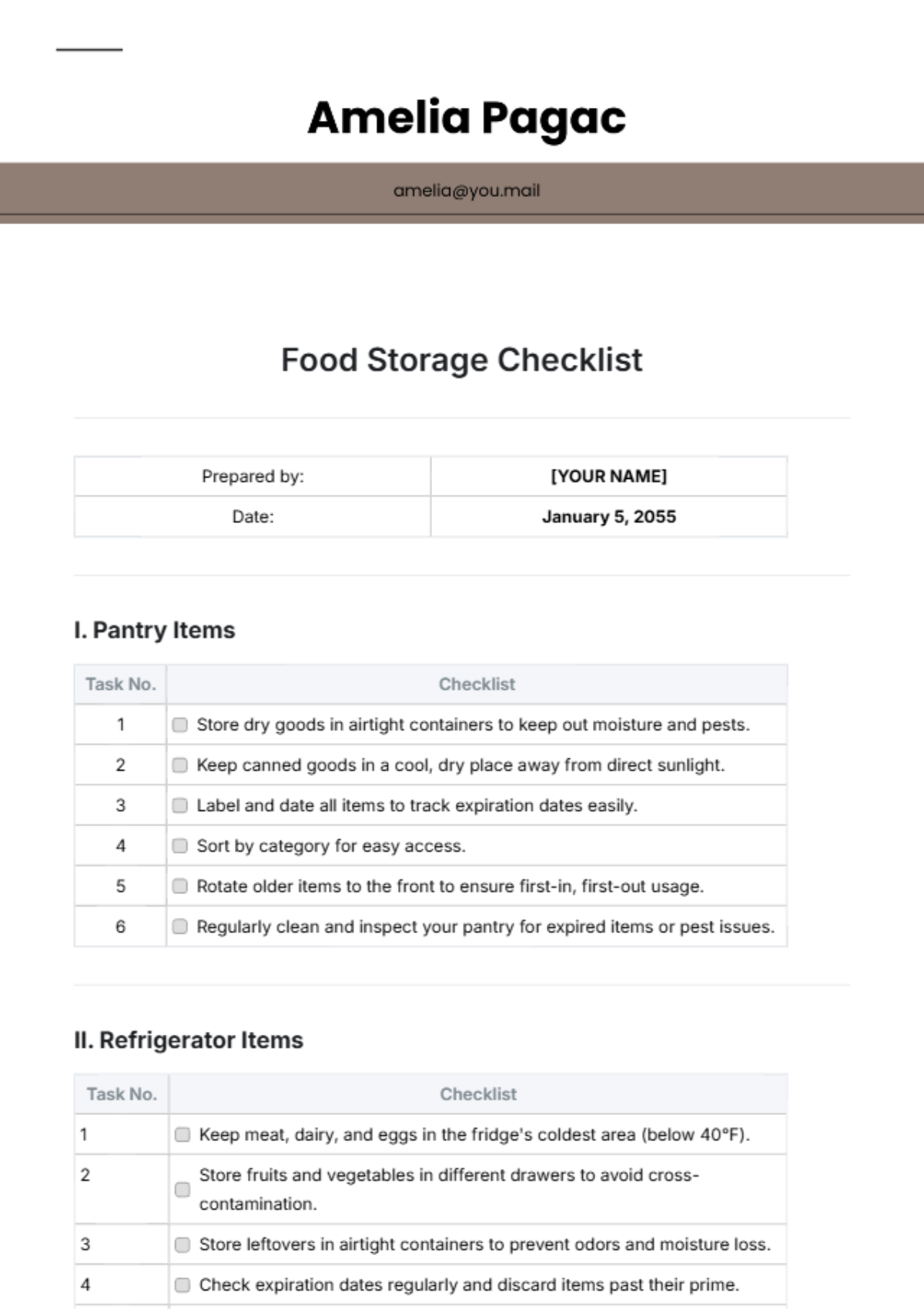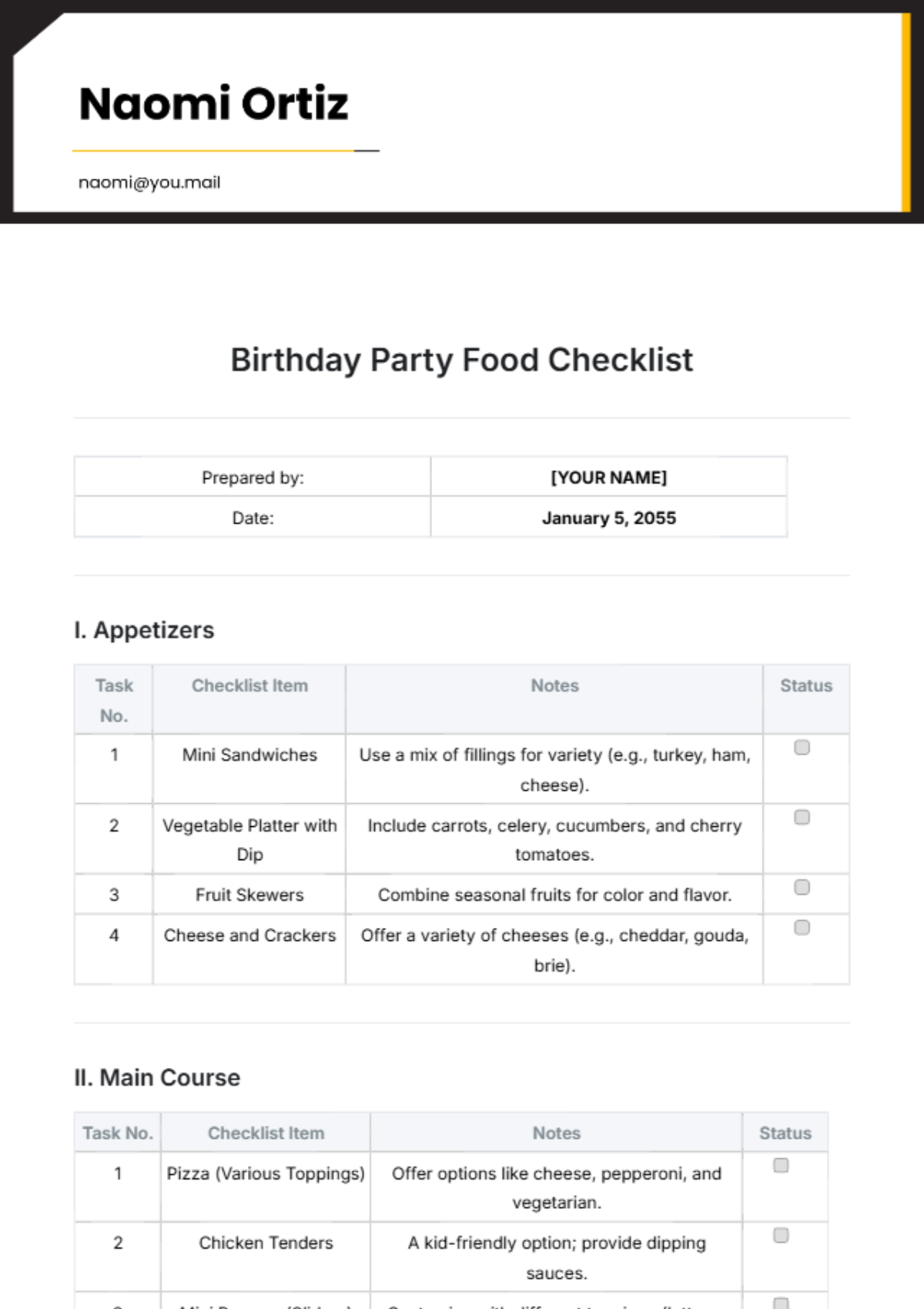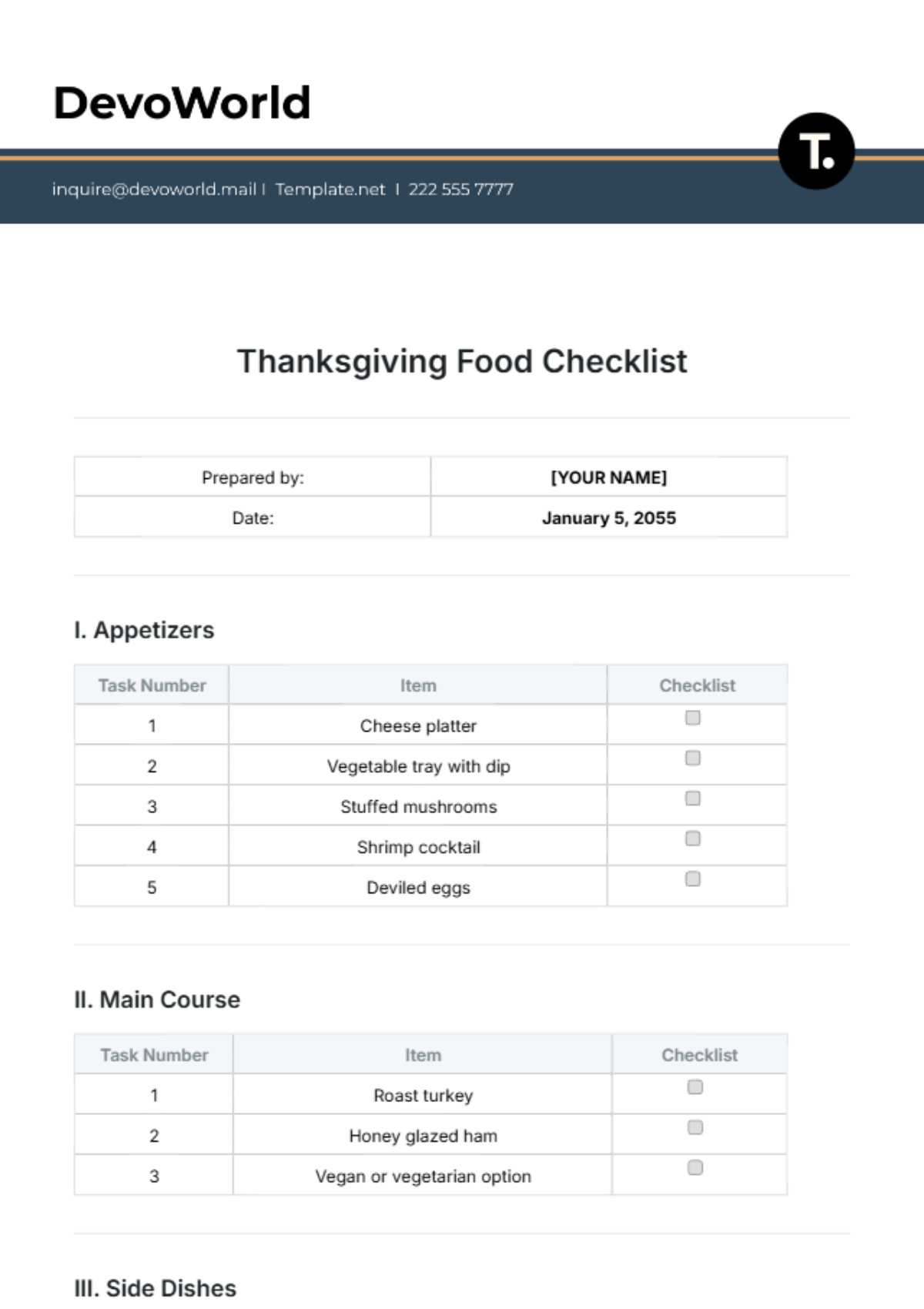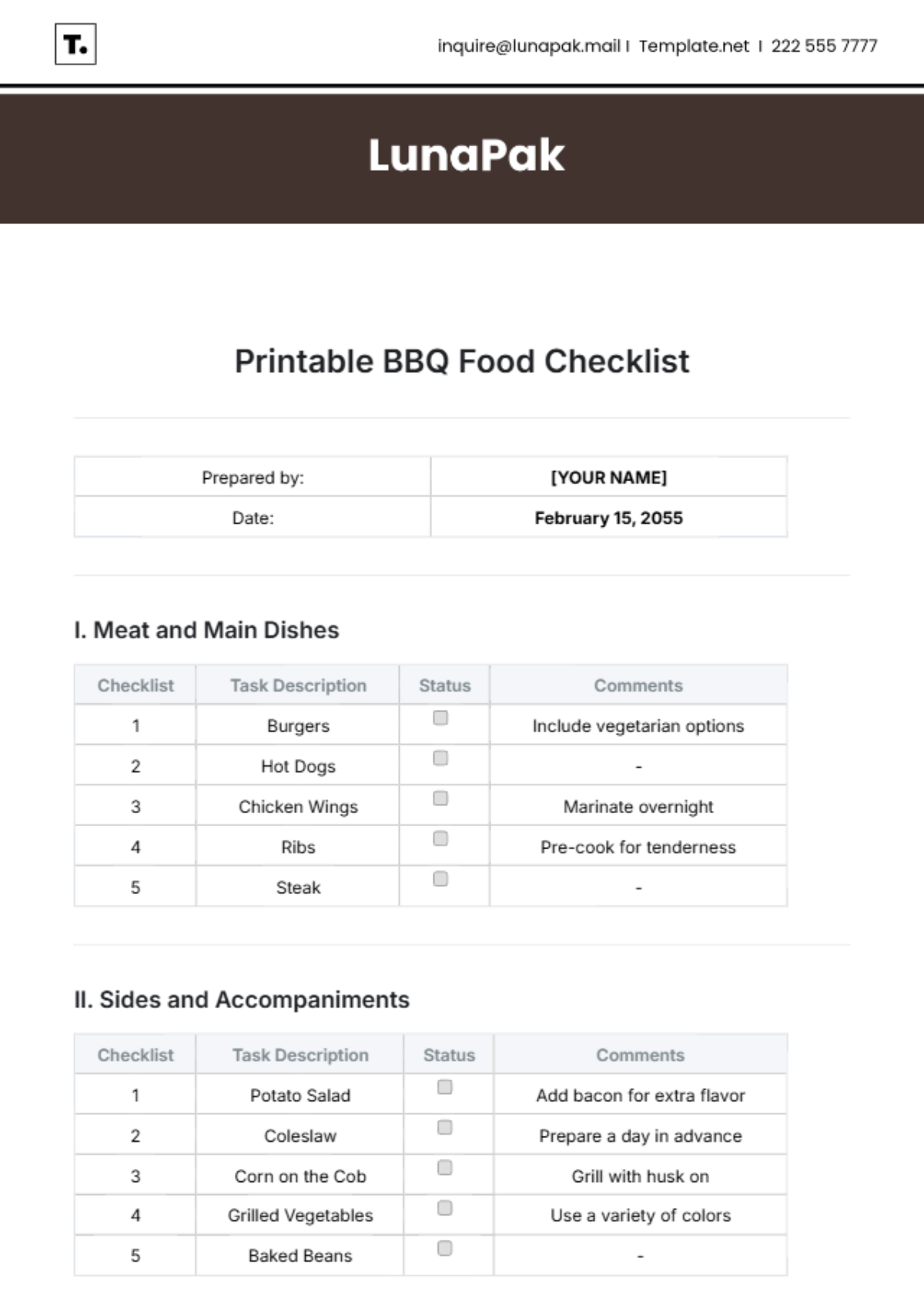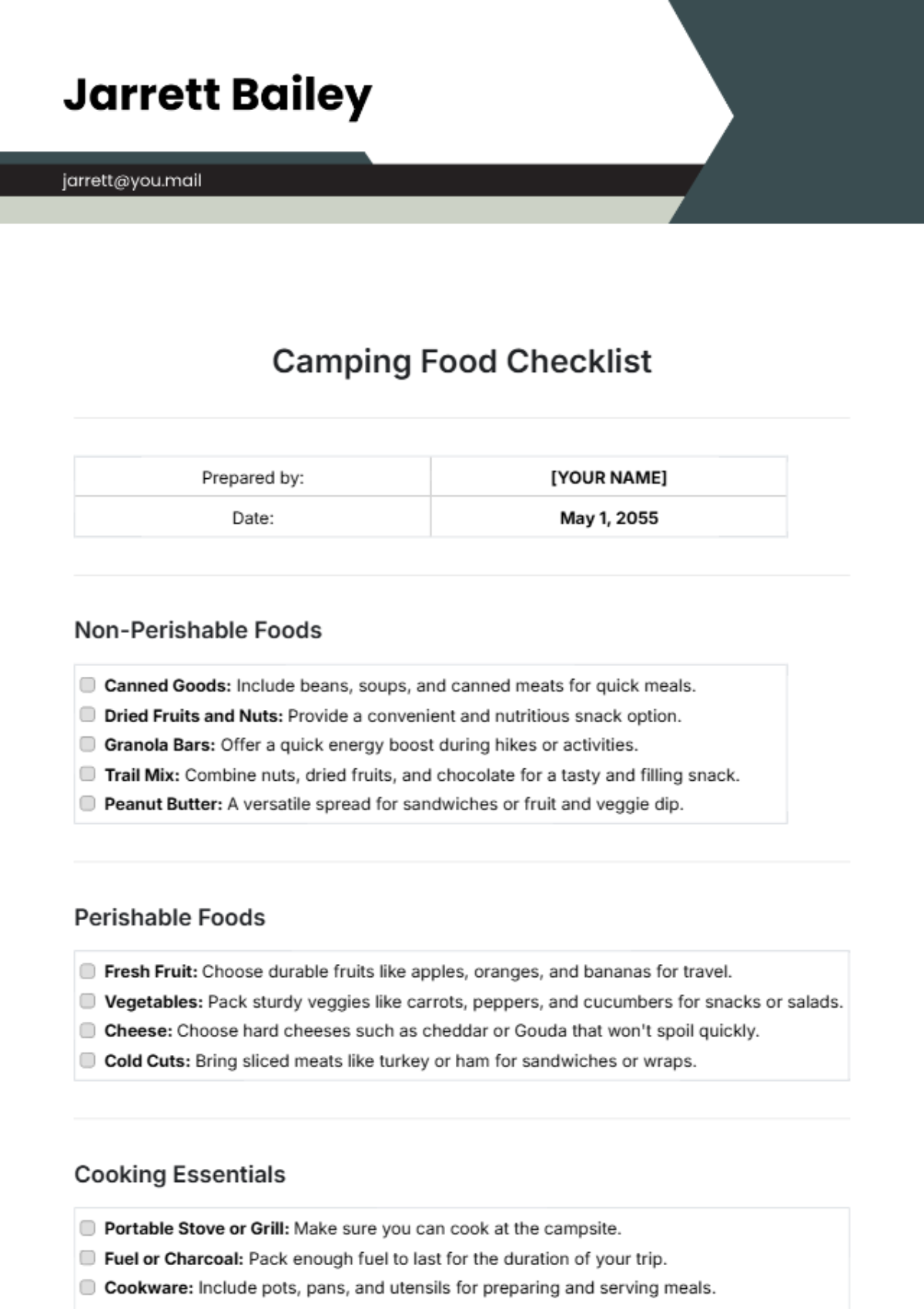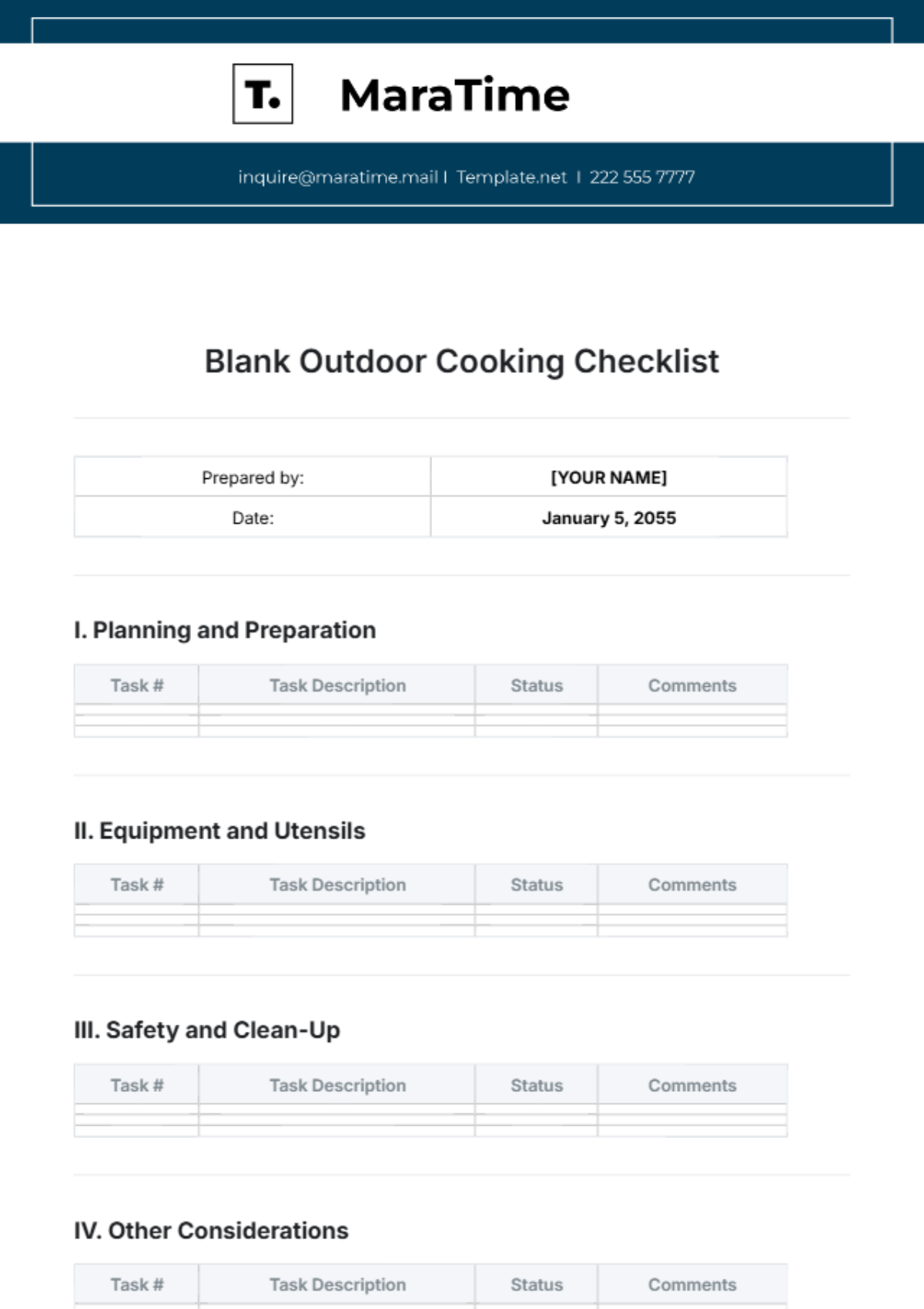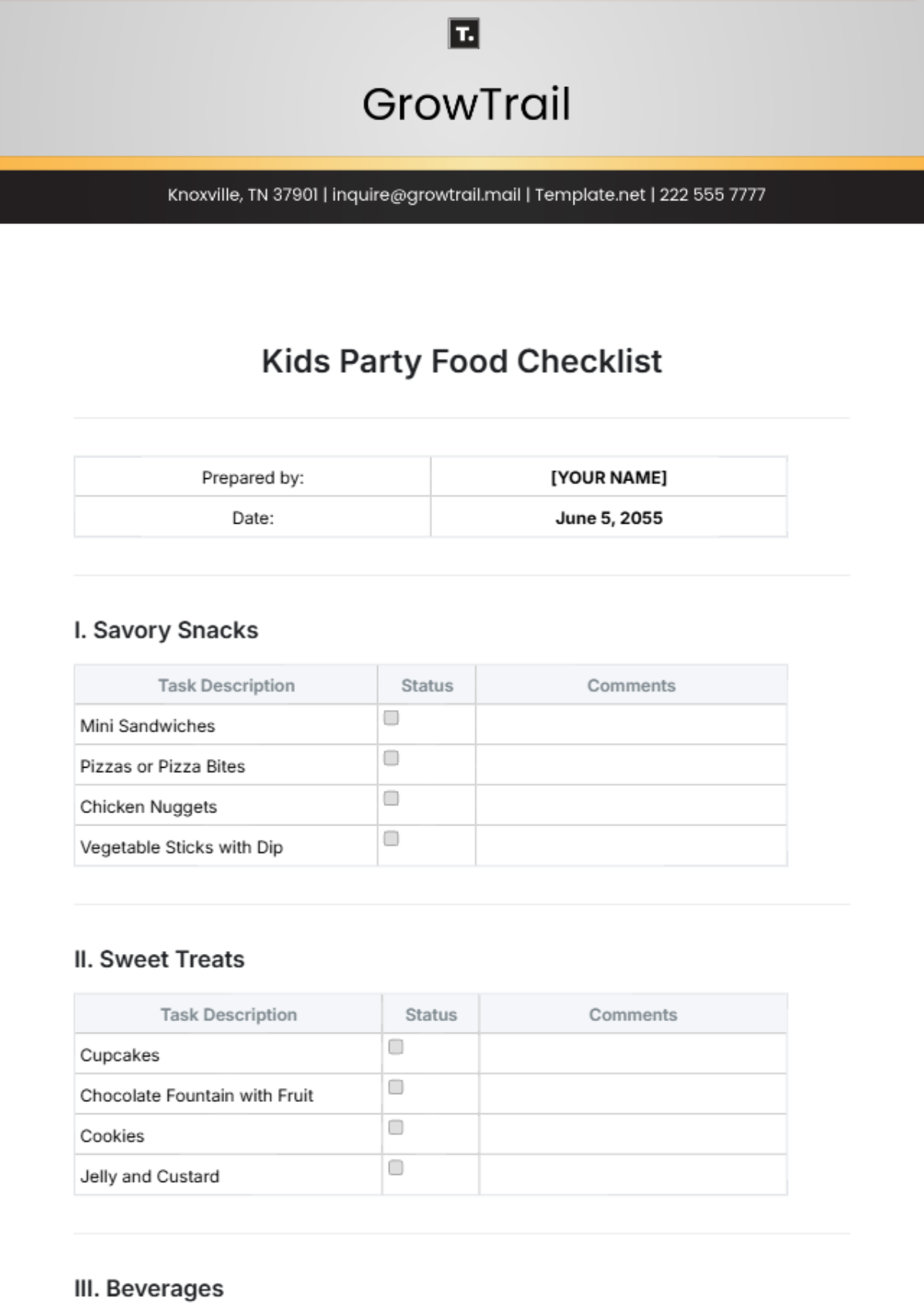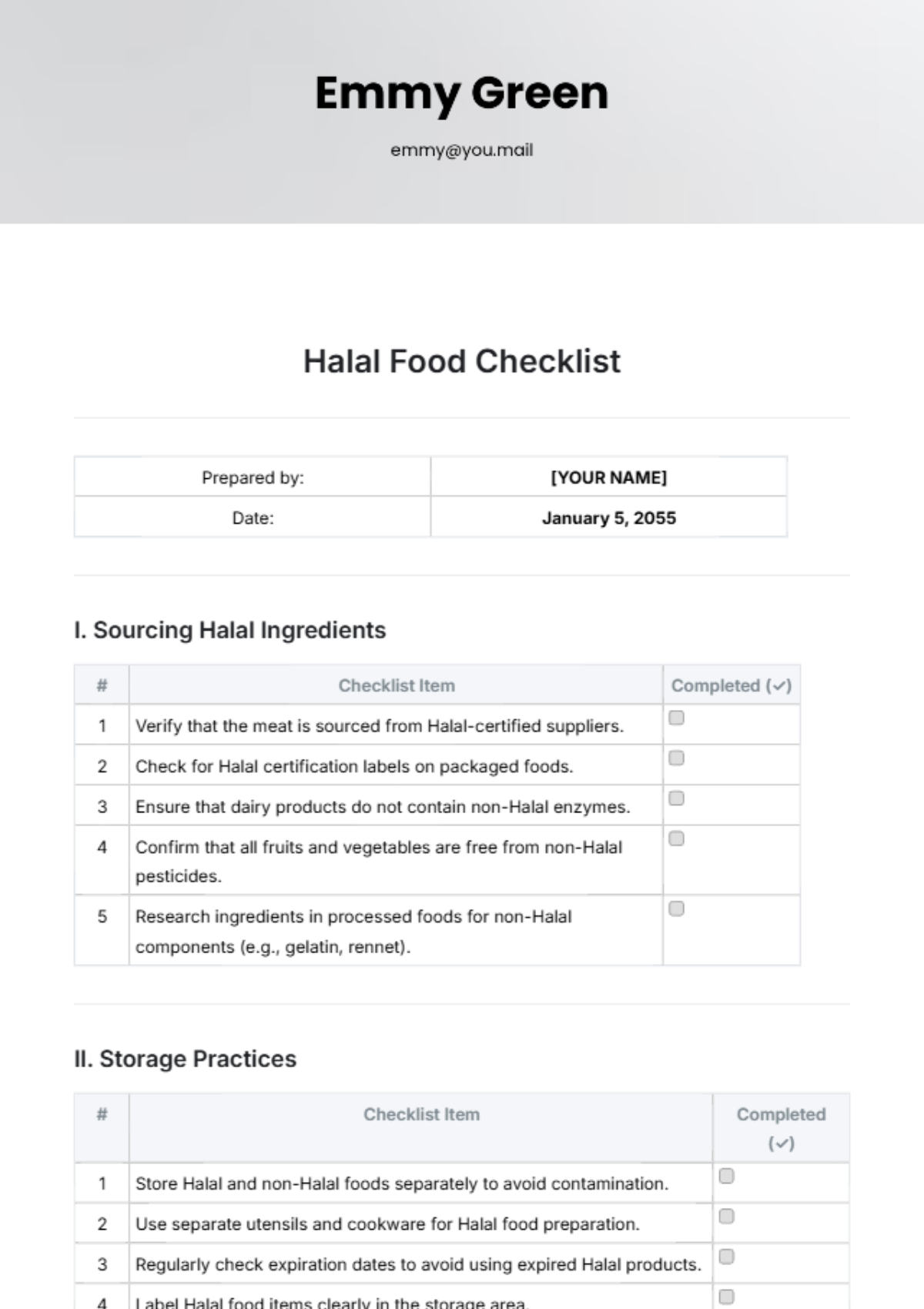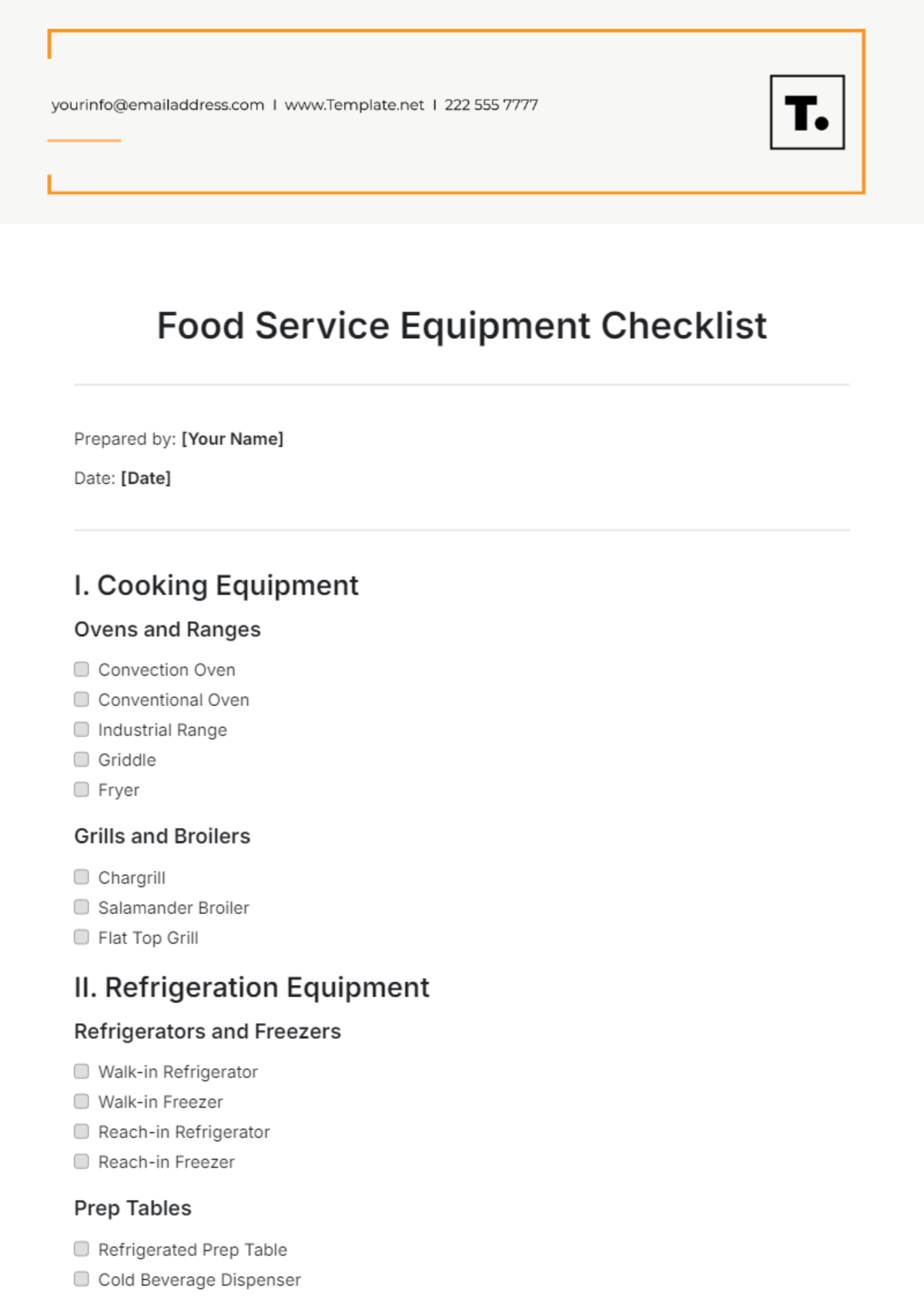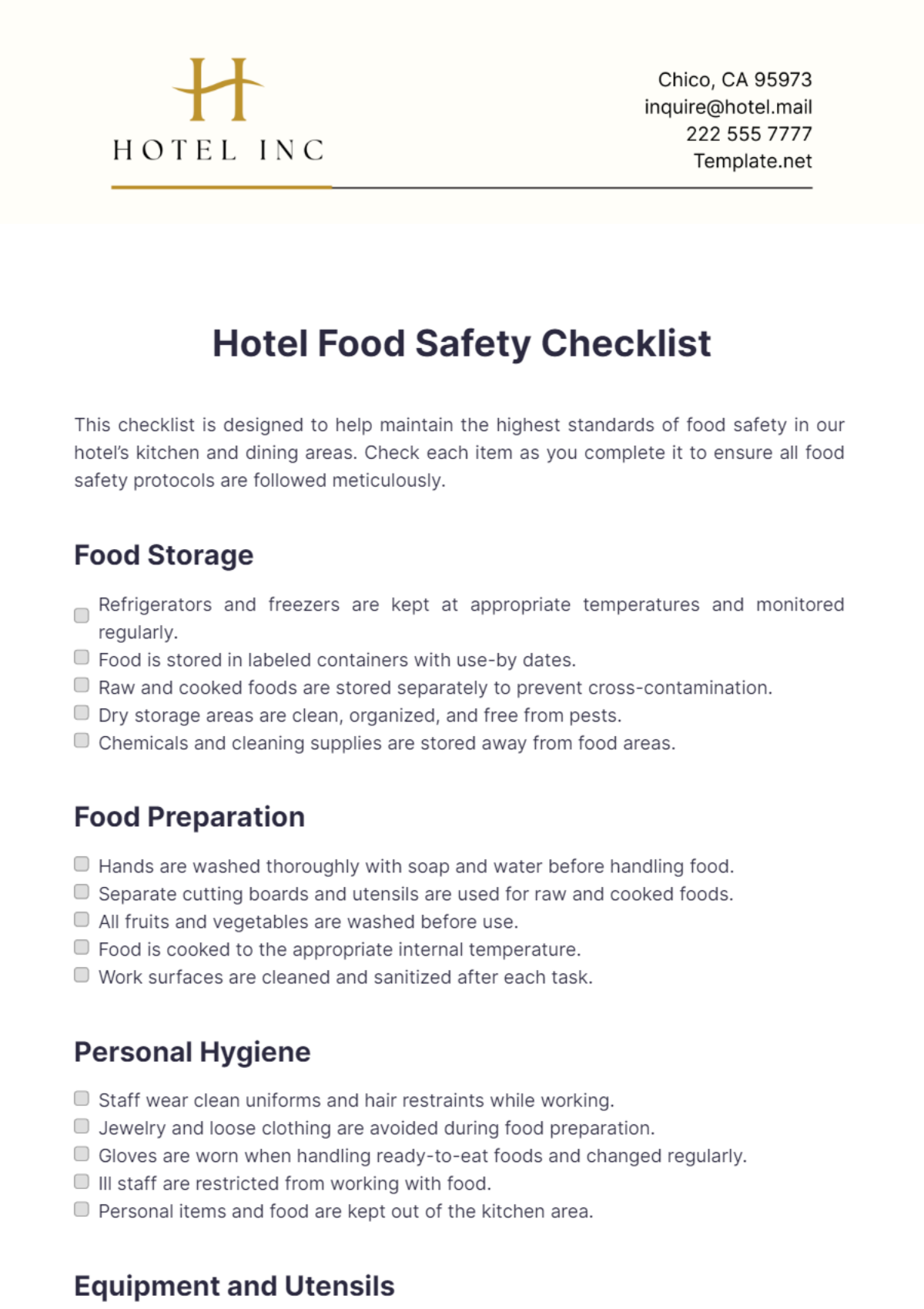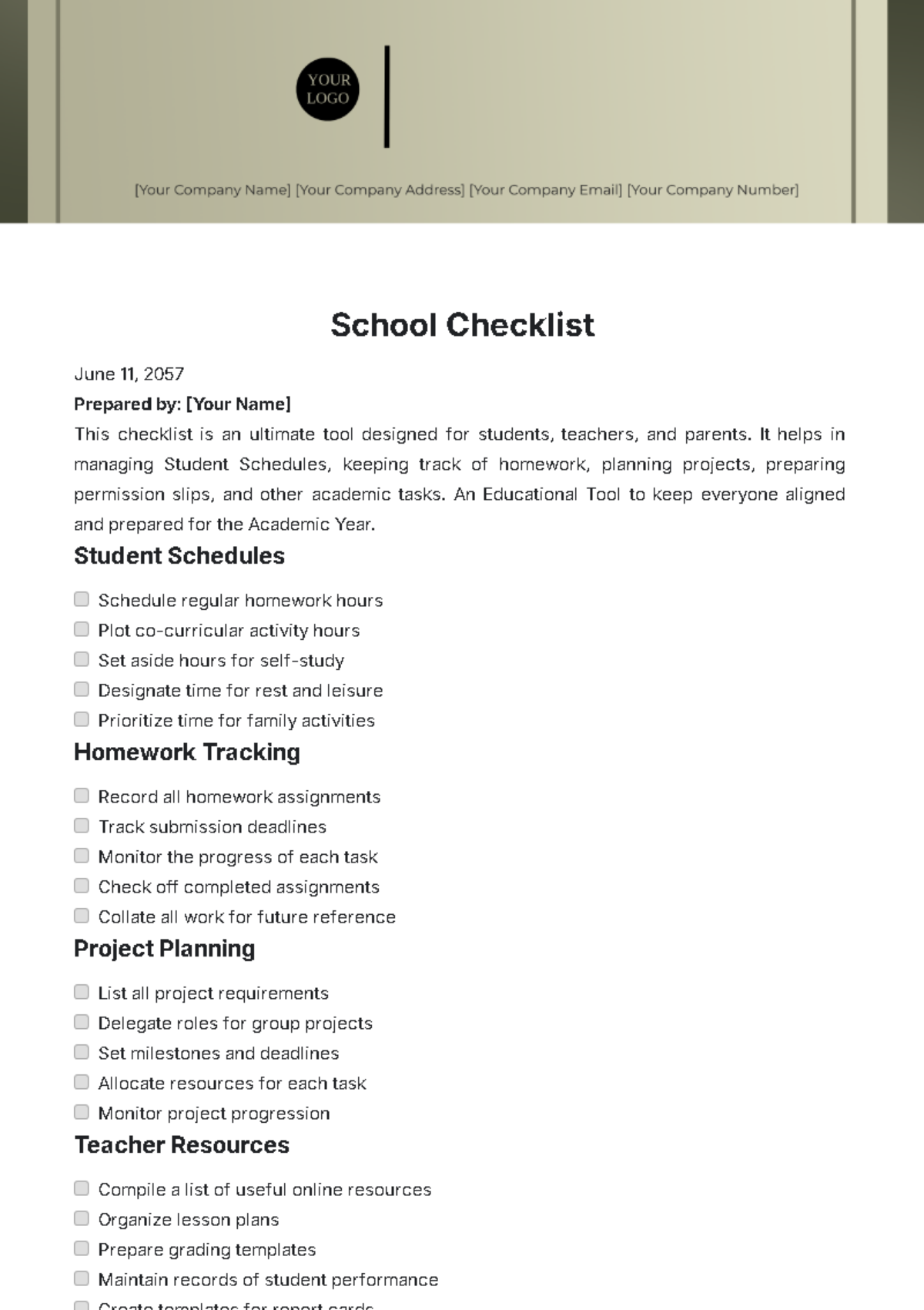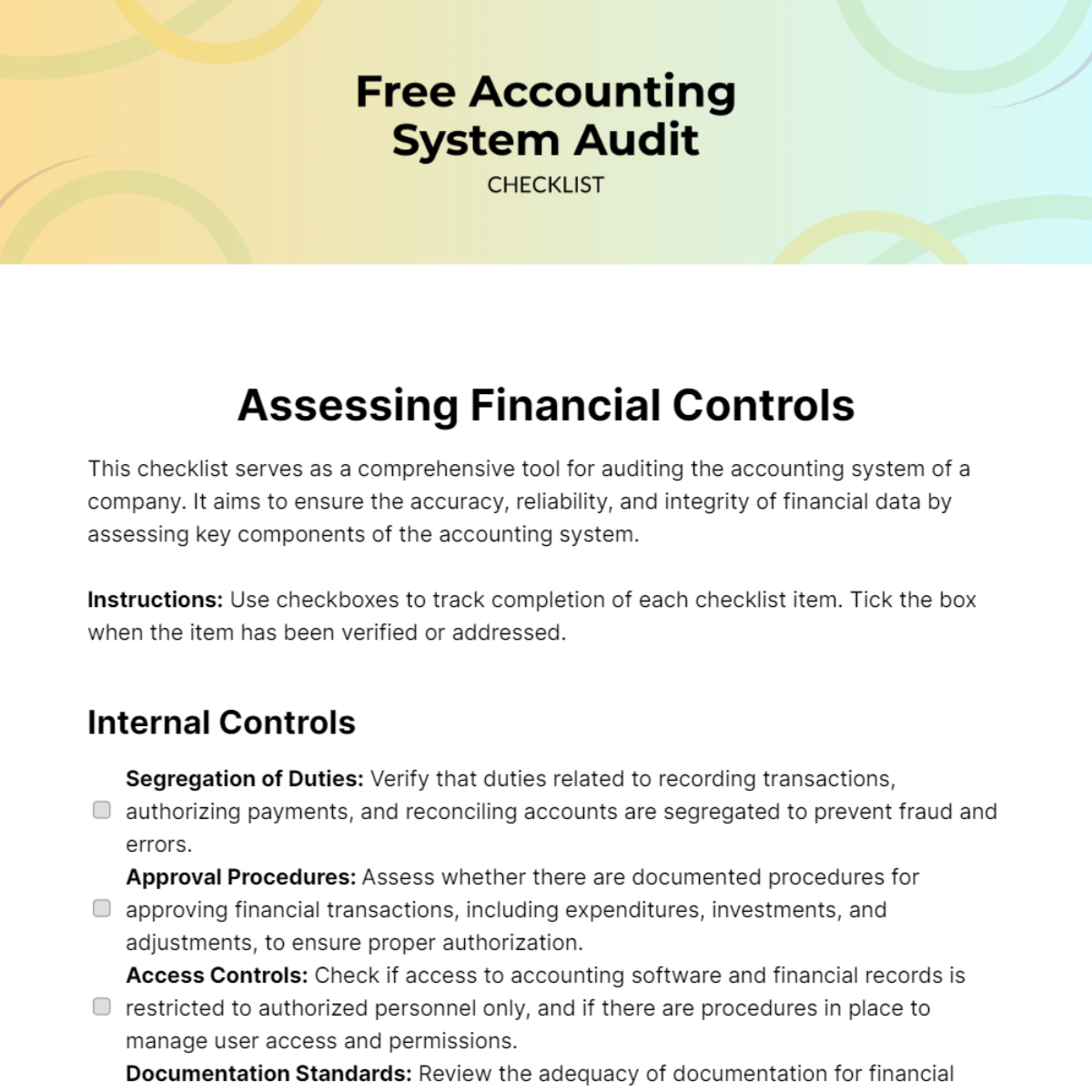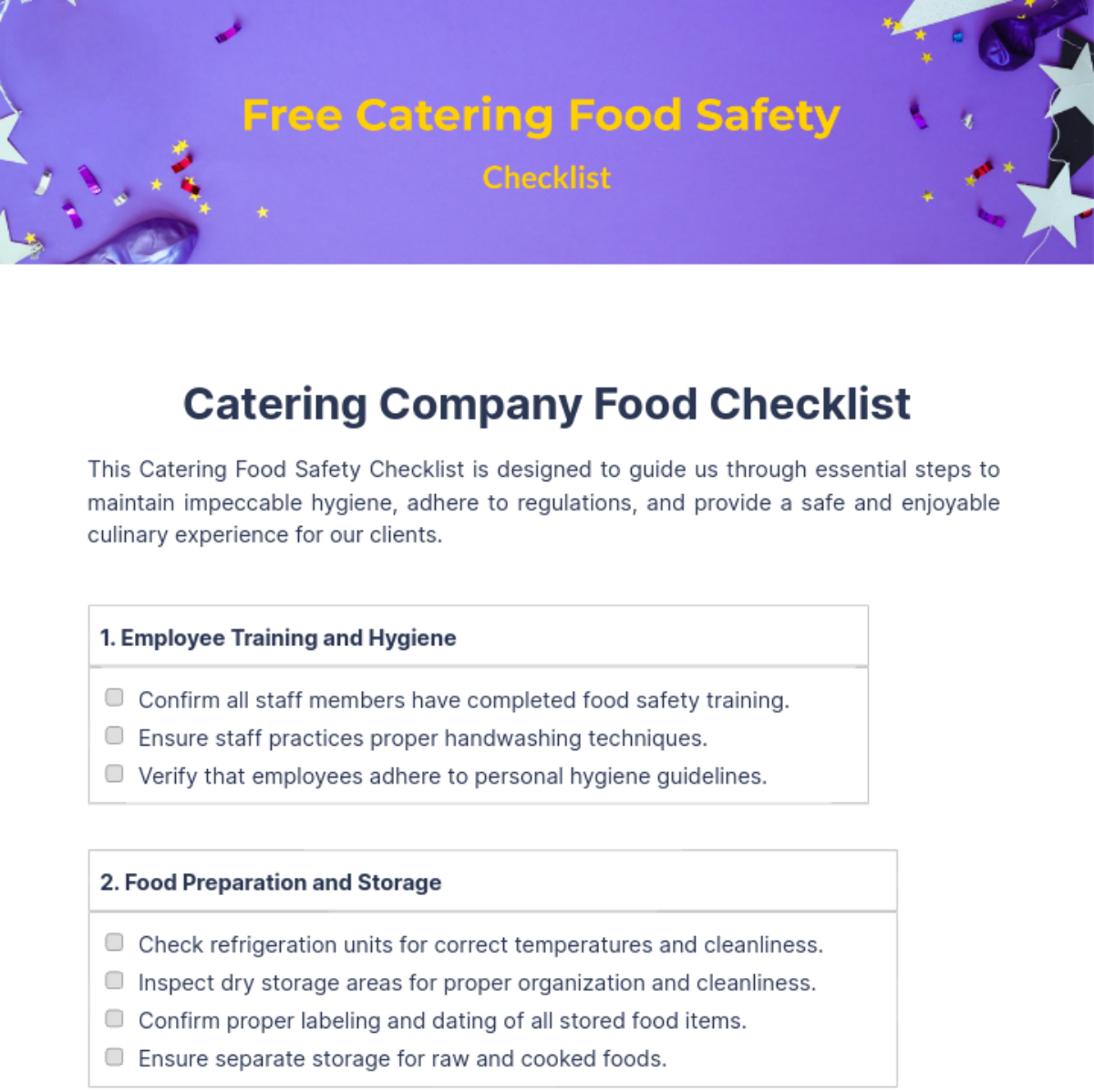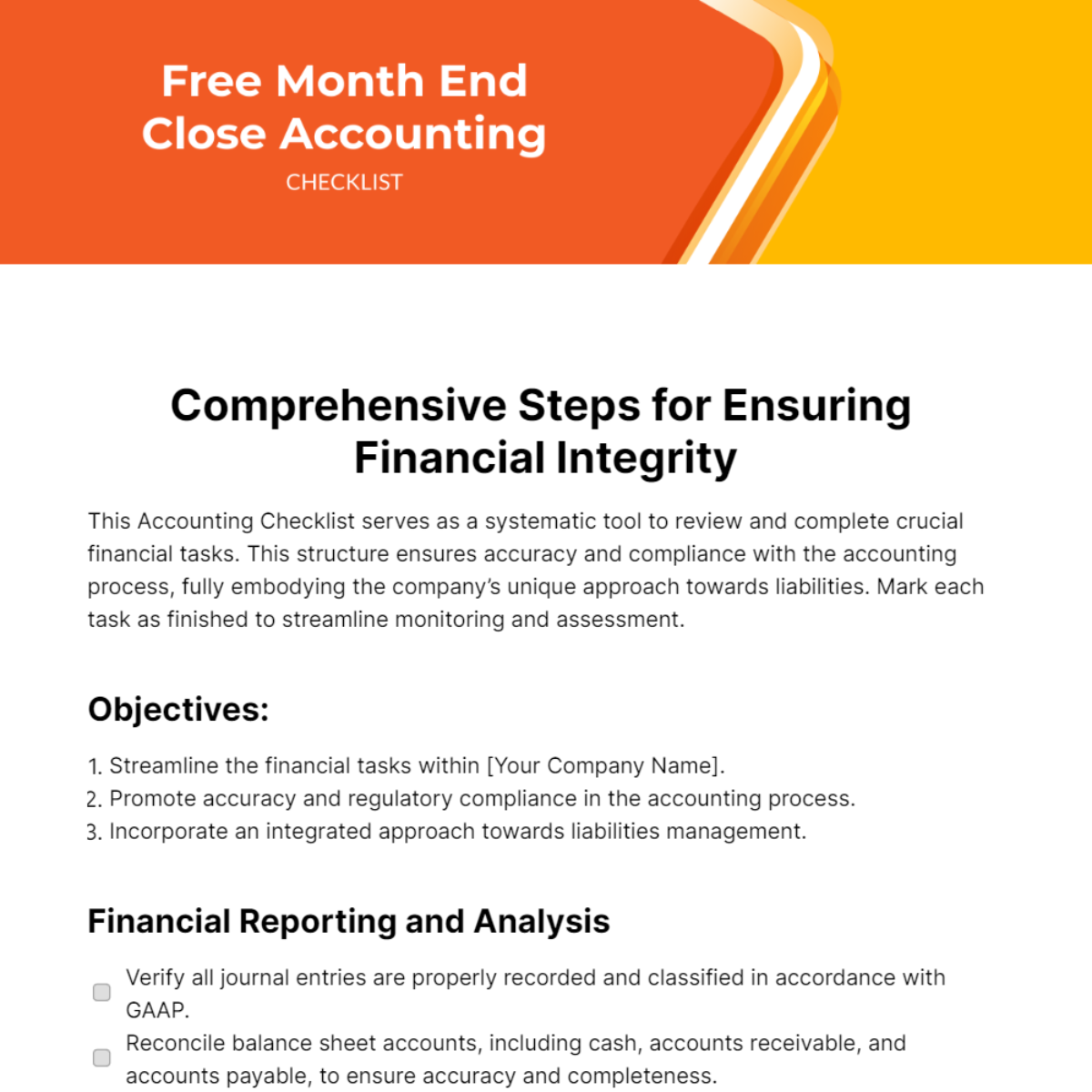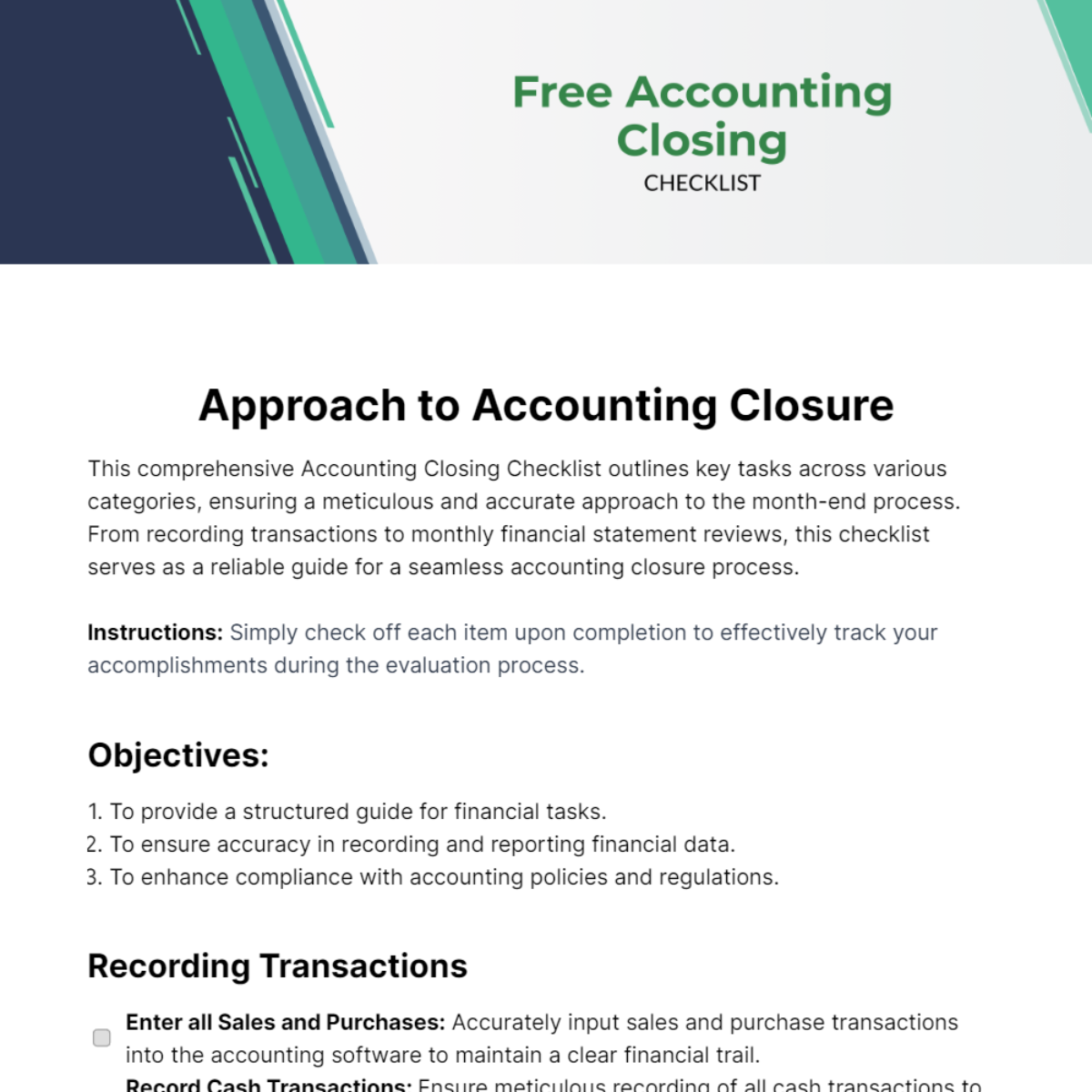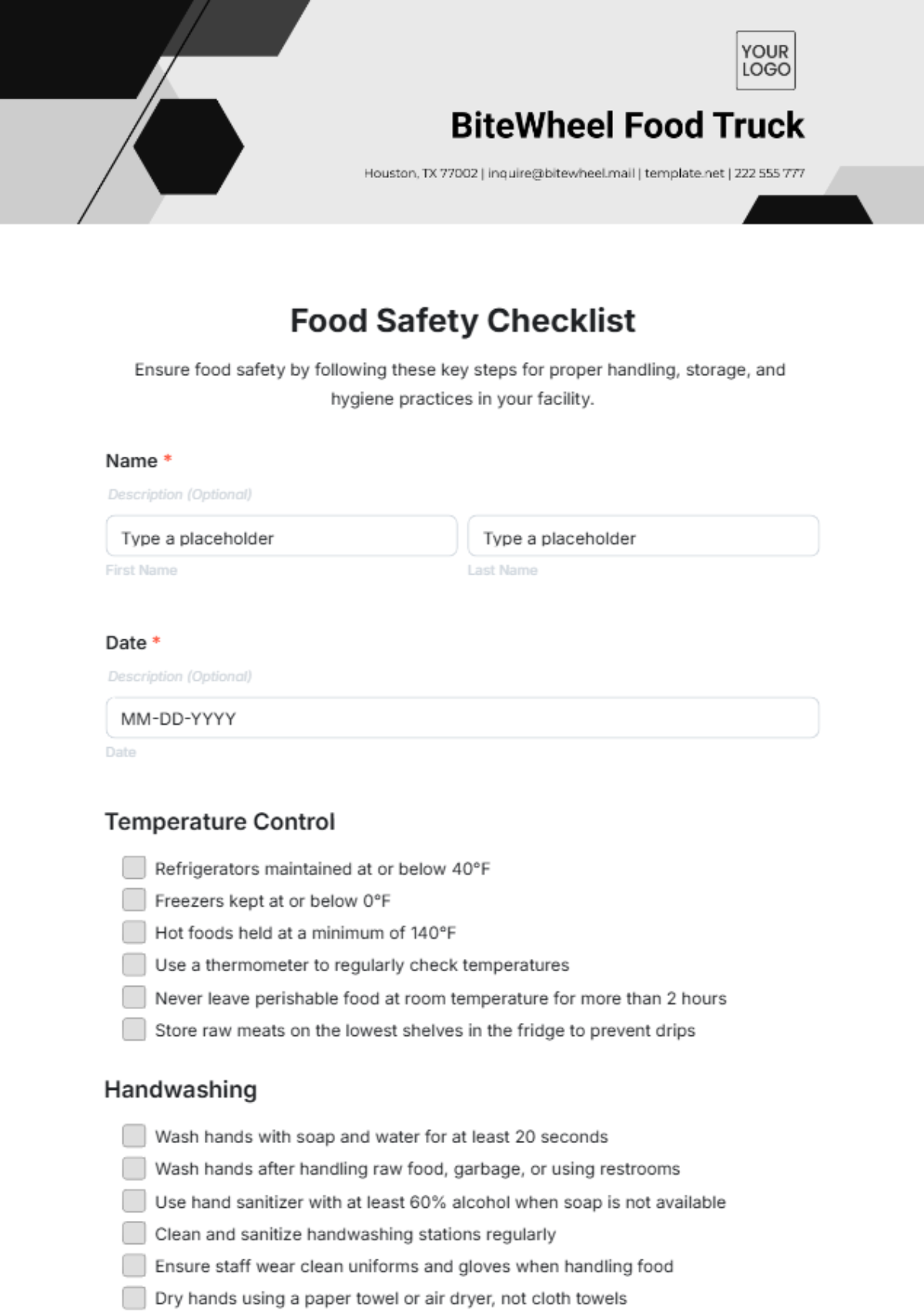Comprehensive Steps for Ensuring Financial Integrity
This Accounting Checklist serves as a systematic tool to review and complete crucial financial tasks. This structure ensures accuracy and compliance with the accounting process, fully embodying the company’s unique approach towards liabilities. Mark each task as finished to streamline monitoring and assessment.
Objectives:
Streamline the financial tasks within [Your Company Name].
Promote accuracy and regulatory compliance in the accounting process.
Incorporate an integrated approach towards liabilities management.
Financial Reporting and Analysis
Verify all journal entries are properly recorded and classified in accordance with GAAP.
Reconcile balance sheet accounts, including cash, accounts receivable, and accounts payable, to ensure accuracy and completeness.
Review income statement variances against budgeted or forecasted amounts to identify any discrepancies or unusual trends.
Analyze key performance indicators (KPIs) such as profitability ratios, liquidity ratios, and efficiency ratios to assess the company's financial health.
Prepare financial statements, including the income statement, balance sheet, and cash flow statement, in compliance with regulatory requirements.
Accruals and Prepayments
Accrue expenses for goods or services received but not yet invoiced, such as utilities, rent, and salaries.
Record prepayments for expenses paid in advance but not yet incurred, such as insurance premiums or rent.
Review accruals and prepayments schedules to ensure completeness and accuracy.
Adjust accruals and prepayments based on actual usage or consumption during the period.
Reconcile accruals and prepayments to supporting documentation and vendor invoices.
Compliance and Regulatory Requirements
Review compliance with tax obligations, including sales tax, payroll tax, and income tax filings.
Verify compliance with regulatory requirements, such as SEC reporting (for publicly traded companies) or industry-specific regulations.
Assess compliance with accounting standards, such as GAAP or IFRS.
Document any changes in accounting policies or procedures and ensure proper disclosure in financial statements.
Conduct internal controls testing to identify and mitigate any weaknesses or deficiencies.
Closing Procedures and Documentation
Perform a final review of all financial transactions and adjustments made during the month.
Close sub-ledgers and ensure proper reconciliation to the general ledger.
Archive supporting documentation, including invoices, bank statements, and reconciliations, in a secure and organized manner.
Document any significant accounting judgments or estimates made during the month-end close process.
Prepare a month-end close checklist outlining tasks completed, outstanding issues, and deadlines for next month's close.
Prepared by: [Your Name]
Date: [Date]
